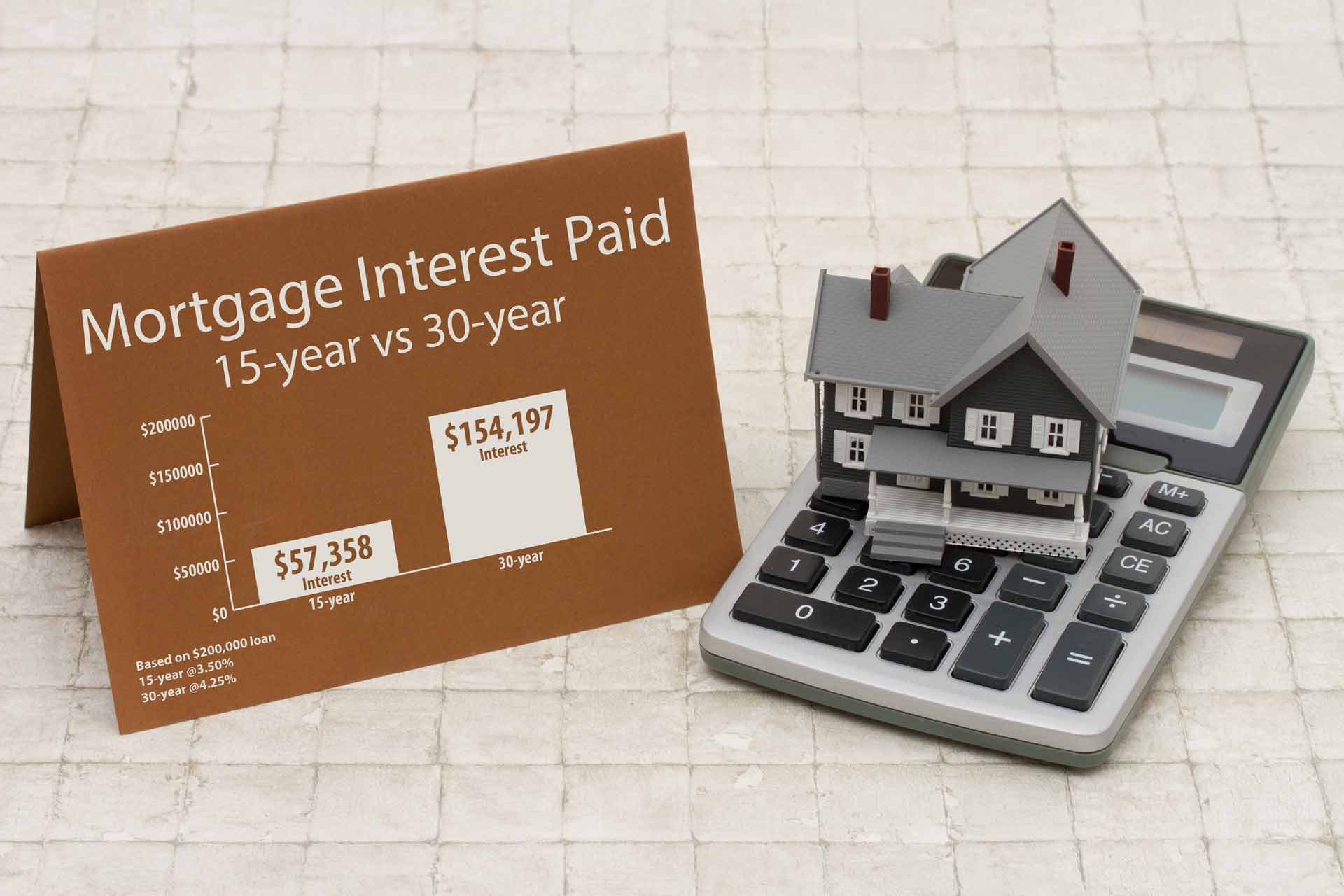Texas is a prime spot for residential..
Read More
Single Family Office Guide to Texas Real Estate Investments
Texas is a prime spot for residential real estate investments, perfect for both new and seasoned family offices. The state boasts a booming economy and a rapidly growing population. Many major corporations are relocating to Texas, further fueling economic growth and creating numerous job opportunities. This influx of jobs draws more people, which increases demand for housing. Texas also has a favorable tax environment. There is no state income tax, which is attractive for investors looking to maximize their returns. The affordability of real estate compared to other major markets makes Texas an ideal place for long-term investments. Properties here provide great cash flow opportunities and have a strong potential for appreciation. These factors make Texas a suitable choice for diversifying investment portfolios and achieving financial growth. Whether you aim to start your investment journey or look to expand an existing portfolio, Texas offers diverse options to meet your needs. Family offices can find valuable opportunities in single-family homes, multifamily units, and rental properties. Understanding the fundamentals of the Texas market is key to making informed investment decisions and maximizing returns. Understanding Texas Residential Market Fundamentals Key Residential Market Trends in Major Cities Texas’s major cities like Austin, Dallas, and Houston are experiencing significant growth. Austin has become a tech hub, attracting companies like Apple and Tesla. Dallas boasts a diverse economy, while Houston remains strong in energy and healthcare sectors. These cities see a steady influx of new residents, pushing up housing demand and prices. High-Demand Property Types In Texas, single-family homes and multifamily units are highly sought after. Single-family homes are favored by families and long-term residents. Multifamily units, including duplexes and apartment buildings, cater to younger renters and those seeking flexibility. Both property types offer solid investment potential with steady rents and high occupancy rates. Investor-Friendly Factors Texas is an investor-friendly state. The absence of state income tax is a significant draw for investors. Additionally, housing prices in Texas are more affordable compared to other large markets. High rental demand, driven by a growing workforce and population, ensures good rental income. These factors make Texas an attractive place for expanding real estate portfolios. Getting Started: Investment Strategies for Family Offices Direct Residential Acquisitions Family offices can start by purchasing single-family or multifamily rental properties. Look for areas with stable growth potential. Cities like Austin, Dallas, and Houston are great options due to their strong economies and growing populations. Focus on neighborhoods with good schools, low crime rates, and proximity to jobs and amenities. Leveraging Private and Institutional Lending Utilize private and institutional funding sources to expand purchasing power and maintain liquidity. Family offices can benefit from lower interest rates and flexible loan terms. Leveraging these funds helps manage risk and enables the acquisition of multiple properties, enhancing portfolio growth. Partnering with Local Experts Local expertise is invaluable. Partner with experienced Texas-based real estate agents, property managers, and legal advisors. They understand local regulations, market dynamics, and can provide insights into the best investment opportunities. Local partners can also help manage properties efficiently, ensuring steady income and lower vacancies. Portfolio Growth Strategies for Existing Investors Portfolio Diversification Diversifying within Texas can help balance risk and increase potential returns. Consider investing in a mix of single-family homes, multifamily units, and rental properties across different cities. For example, blend properties in fast-growing suburbs with those in established urban neighborhoods. This approach reduces exposure to market fluctuations and capitalizes on various growth trends statewide. Value-Add Opportunities Adding value to properties is a smart strategy for maximizing returns. Look for fixer-uppers or older properties that can be renovated. Upgraded amenities or modern layouts can significantly increase property value and rental income. Simple improvements like new kitchens, bathrooms, or energy-efficient systems can attract higher-paying tenants and boost occupancy rates. Scaling with Rental Property Management Outsourcing property management can streamline operations, especially for larger portfolios. Professional property managers handle tenant screening, maintenance, and rent collection efficiently. This allows family offices to focus on expanding their portfolio without getting bogged down in day-to-day tasks. Good property managers also ensure tenant satisfaction, leading to lower vacancy rates and steady cash flow. Valuable Tips for New and Accredited Investors Researching Local Markets Researching local markets ensures you invest in areas with the highest potential returns. Look into neighborhoods with good schools, low crime rates, and access to jobs. High-growth areas with new infrastructure projects often present great opportunities. Check local job growth indicators to find stable residential locations that promise long-term viability. Setting Realistic ROI Goals Set achievable Return on Investment (ROI) goals based on Texas market trends. Factor in property appreciation rates and expected rental incomes. Be conservative in your calculations to avoid overestimating potential returns. A clear, realistic goal helps in making informed decisions and tracking investment performance. Taking Advantage of Tax Benefits Take full advantage of the tax benefits available in Texas. Mortgage interest deductions and property depreciation can significantly reduce taxable income. Familiarize yourself with local and federal tax incentives to maximize your returns. Consider consulting with a tax advisor to ensure you leverage all available benefits effectively. Conclusion Investing in Texas residential real estate offers numerous opportunities for both new and experienced investors. The state’s strong economic growth, favorable tax environment, and diverse housing options make it a prime location for real estate investments. By understanding market trends, diversifying portfolios, and leveraging local expertise, family offices and individual investors can maximize their returns. Family offices starting out can benefit greatly from direct residential acquisitions and should consider using private and institutional lending to expand their purchasing power. For those managing larger portfolios, value-add opportunities and professional property management can drive significant growth. By conducting thorough market research, setting realistic ROI goals, and taking advantage of tax benefits, investors can optimize their investment strategies. Explore the potential of Texas real estate with Elysium Real Estate Investments LLC, a real estate advisor. For tailored guidance and deeper insights, contact us for a consultation. Let Elysium Real Estate Investments LLC help you make informed,

Asset Protection Fundamentals: Trusts for Real Estate in Texas Explained
Protecting your assets is crucial for real estate investors in Texas. Trusts offer valuable legal benefits, tax efficiencies, and liability protection. These advantages make trusts an excellent tool for people like investors, family offices, retirees, and entrepreneurs who want to preserve and grow their wealth. Trusts provide significant protection against potential liabilities. They can shield your assets from legal claims and lawsuits, giving you peace of mind. Additionally, trusts can help with effective tax planning. By utilizing trusts, you can take advantage of tax benefits that allow for more efficient tax management, ultimately saving money. Investing in a trust can be a smart move for safeguarding your investments and planning for the future. Understanding the different types of trusts and how they can be tailored to your needs is key to making the most out of your real estate investments in Texas. The Importance of Asset Protection for Texas Real Estate Investors Safeguarding Against Liabilities When you invest in real estate, protecting your assets from legal claims and liabilities is crucial. Trusts offer a strong layer of protection. If someone sues you, the assets held within a trust are usually not considered part of your personal estate. This means those assets are shielded from legal claims and judgments. For real estate investors, this can prevent significant financial losses and provide peace of mind. Tax Planning Efficient tax planning is another reason to consider using trusts. Trusts can help you take advantage of various tax benefits, reducing how much you owe each year. Certain trusts allow for asset growth without the burden of immediate taxes. By deferring taxes or even lowering tax rates, you can retain more of your earnings. This can be especially useful for high net worth individuals who aim to maximize their investment returns. Estate and Succession Planning Trusts simplify the process of passing on your assets to your heirs. By avoiding the lengthy and expensive probate process, you ensure your real estate investments are transferred smoothly. This is ideal for family offices and entrepreneurs who have multi-generational wealth. With clear instructions within a trust, you can manage how your assets are distributed, ensuring your family’s needs are met, and your estate’s value is preserved. Types of Trusts for Real Estate Asset Protection Revocable Living Trust A revocable living trust offers flexibility and control. You can add or remove assets as you wish and even alter the trust during your lifetime. This type of trust helps you avoid probate and maintain control over your assets, making it great for pre-retirees and entrepreneurs looking for flexibility in their estate planning. Irrevocable Trust An irrevocable trust provides a higher level of asset protection compared to a revocable trust. Once assets are transferred into an irrevocable trust, they are no longer part of your personal estate. This is ideal for accredited investors and high net worth individuals focused on shielding their assets from legal claims and estate taxes. Land Trust Land trusts are specific to real estate and offer the benefit of anonymity. They help keep your name off public records, adding a layer of privacy to your investments. This can be particularly appealing for expatriates and overseas investors who seek discretion in their property holdings. Qualified Personal Residence Trust (QPRT) A Qualified Personal Residence Trust (QPRT) is designed to help transfer a personal residence to heirs while minimizing estate taxes. You can continue to live in the home for a specified term, after which it transfers to the beneficiaries. This is a wise choice for high net worth individuals looking to pass on their residence without a hefty tax burden. Dynasty Trust A dynasty trust is perfect for family offices and those managing multi-generational wealth. It allows for the transfer of assets to beneficiaries while avoiding estate and gift taxes for several generations. This trust ensures long-term financial security and helps preserve family wealth over time. Five Key Questions Investors Should Ask What Is the Best Trust for My Investment Goals? Choosing the best trust depends on your specific goals. A revocable living trust offers flexibility, allowing you to manage your assets and make changes as needed. This is ideal for pre-retirees and recent retirees who might need access to their assets. For those concerned about maximum protection and tax benefits, an irrevocable trust might be better. It shields assets from creditors and can have significant tax advantages. How Soon Should I Establish Trust in My Assets? The timing of establishing trust is vital. If you’re accumulating assets quickly or planning major future investments, it’s wise to set up a trust early. This is particularly important for high net worth individuals looking for long-term protection. Estate planning milestones, such as retirement or the birth of a grandchild, are also key times to consider. Starting early ensures your assets are protected and your estate plans are in place. What Are the Potential Tax Benefits? Each trust type comes with unique tax benefits. For example, a Qualified Personal Residence Trust (QPRT) allows you to reduce estate taxes by transferring your home into the trust. Irrevocable trusts can remove assets from your taxable estate, lowering your estate tax bill. By understanding how each trust works, you can maximize tax advantages and improve your overall financial strategy. Does a Trust Protect Me from Personal Creditors? Most trusts offer some degree of protection from personal creditors. Irrevocable trusts are particularly strong in this regard, as assets within the trust are no longer considered part of your personal estate. This means they can’t be seized to satisfy personal debts. Revocable trusts, while useful for other reasons, offer less creditor protection, so understanding the level of protection each trust offers is key. What Are the Setup Costs and Process Steps? Setting up a trust involves initial costs and a series of steps. You’ll need to consult with a legal expert to draft the trust documents, which can cost a few thousand dollars depending on complexity. The setup process typically includes transferring your assets into the trust,

Retirement Planning with Texas Real Estate for Entrepreneurs
Texas real estate offers a unique opportunity for entrepreneurs and investors to build retirement wealth. The state boasts strong market fundamentals like robust economic growth, a steady influx of new residents, and relative affordability. These factors make Texas an attractive choice for those looking to secure their financial future. Investing in Texas property can provide stable rental income, which is key for predictable cash flow during retirement. Cities like Austin, Dallas, and Houston have seen consistent growth, driving up property values and rental demand. This consistent cash flow can be a reliable income source, helping retirees cover daily expenses without dipping into their savings. Tax advantages also play a significant role in retirement planning through real estate. Texas offers benefits like depreciation and mortgage interest deductions, which help reduce tax liability. These incentives can enhance overall returns, making it easier for entrepreneurs to build a solid retirement nest egg. Understanding Texas Real Estate as a Retirement Strategy Stable Cash Flow Investing in Texas residential real estate can provide a stable cash flow, essential for retirement planning. Rental properties generate a steady income from tenants, which can be a reliable financial support during retirement. High-demand areas in Texas like Austin, Dallas, and Houston have strong rental markets, ensuring you have consistent tenants and minimal vacancies. This predictable cash flow helps retirees manage monthly expenses without depending solely on savings or pensions. Asset Appreciation Texas has a history of property appreciation, making it a strategic choice for real estate investment. Cities like Austin and San Antonio have shown significant growth, both in property value and local economy. This appreciation means that the value of your real estate investment can increase over time, potentially providing you with substantial returns when you decide to sell. Emerging neighborhoods in these cities are particularly promising, offering great potential for appreciation as they develop. Tax Advantages One of the key benefits of investing in Texas real estate is the tax advantages. Property owners can take deductions for mortgage interest and depreciation, which reduce overall tax liability. These tax incentives help enhance the returns from real estate investments, making it a smarter choice for retirement planning. By leveraging these benefits, you can maximize your investment’s profitability and keep more of your earnings. Getting Started: Investment Strategies for New and Accredited Investors Choosing High-Growth Locations For new and accredited investors, selecting high-growth locations is crucial. Areas such as Austin, Dallas, and Houston are known for their economic vitality and population growth, making them ideal for residential real estate investments. Look for neighborhoods with good schools, low crime rates, and access to amenities which often have higher rental demand and appreciation potential. Funding Options Exploring different funding options is a key step for new investors. Private and hard money lenders provide flexible financing solutions, especially beneficial for entrepreneurs with varied risk tolerances. Whether you are using a conventional mortgage or alternative financing, it’s important to understand the terms and how they align with your investment goals. This way, you can secure the capital needed without overextending yourself financially. Hands-Free Investment Management Hands-free investment management is an attractive option for busy entrepreneurs. Professional property managers can handle everyday tasks like tenant screening, rent collection, and maintenance. This not only saves time but ensures that your properties are well-maintained and tenants are satisfied, leading to reduced vacancies and consistent cash flow. For someone seeking passive income, this approach makes real estate investment much more manageable and less stressful. Diversifying Locally: Expanding Beyond One’s City Evaluating Market Opportunities in Texas To diversify your real estate investments, consider expanding into new Texas cities. Austin, San Antonio, and Fort Worth are growing rapidly and offer numerous opportunities for real estate investors. Each city has its unique appeal and growth prospects. Evaluating these markets involves looking at local economic indicators, job growth, and housing demand. By understanding these factors, you can identify areas with strong potential for rental income and property appreciation. Expanding Property Types Diversification isn’t just about location; it’s also about property type. Adding different types of residential properties to your portfolio can reduce risk and increase opportunities for income. For example, mixing single-family homes with duplexes or multi-unit properties can create a more stable investment. Each property type offers different benefits. Single-family homes may appreciate faster, while multi-unit properties can provide higher rental yields. Collaborating with Local Experts Working with local experts can make all the difference when expanding into new markets. Real estate agents, property managers, and local investors can provide invaluable insights into market trends and regulations. They can help you identify promising properties and navigate local laws. Collaborating with these professionals ensures that you make informed investment decisions and maximize your returns. Tips and Insights for Retirement – Ready Investors Setting ROI and Cash Flow Goals Setting clear ROI and cash flow goals is crucial for retirement-ready investors. Determine what kind of return you need from your investments to meet your retirement needs. This could involve calculating expected rental income, property appreciation, and tax benefits. Having these goals helps guide your investment strategy and ensures that your real estate portfolio aligns with your financial objectives. Leveraging 1031 Exchanges for Portfolio Growth 1031 exchanges are a valuable tool for growing your real estate portfolio without incurring immediate capital gains taxes. These exchanges allow you to sell a property and reinvest the proceeds into a new property, deferring the tax liability. This strategy can help you scale your investments more rapidly and efficiently. Understanding the specifics of 1031 exchanges and working with a knowledgeable advisor can maximize this benefit. Utilizing Texas Tax Incentives Texas offers several tax incentives that can enhance your real estate investment returns. These include property tax deferrals for seniors, homestead exemptions, and deductions for mortgage interest and depreciation. Utilizing these tax advantages can significantly reduce your expenses and increase the profitability of your investments. Working with a tax professional familiar with Texas real estate can help you navigate these benefits and ensure you get the most out

Maximizing Returns with Texas Residential Properties
Texas’s residential real estate market is booming, making it a top choice for investors around the world. From thriving cities like Austin, Dallas, and Houston, Texas offers ample opportunities for high returns. Whether you’re new to real estate or a seasoned investor, understanding how to maximize your returns is crucial. The Lone Star State’s growing economy, diverse job market, and population growth contribute to its promising real estate landscape. These factors keep rental demands high and property values increasing, making it an attractive destination for investment. Moreover, Texas’s lack of state income tax makes it even more appealing, allowing investors to enjoy higher net returns. In this article, you’ll discover valuable tips to help you make the most of your investments. We’ll cover practical strategies, key market insights, and realistic goal-setting tips that cater to both beginners and experienced investors. Whether you’re a high net worth individual, a self-directed IRA holder, or part of a real estate investment club, these tips will help you navigate the Texas market more effectively. By the end, you’ll be equipped with the knowledge you need to make informed investment decisions and achieve higher returns in the Texas residential real estate market. The Potential of Texas Real Estate: An Overview Texas’s residential real estate market is currently one of the hottest in the United States. Cities like Austin, Dallas, and Houston are experiencing rapid growth, with increasing demand for housing driven by a booming economy and job market. This demand creates an excellent opportunity for investors looking for high returns on their investments. Texas is attractive to both domestic and international investors due to its strong economic fundamentals. The state’s low cost of living, lack of state income tax, and business-friendly policies further enhance its appeal. These factors make Texas a desirable location for people to move to, increasing the need for residential properties and driving up property values and rental income. Investing in Texas real estate can offer significant benefits, but it requires an understanding of the market dynamics. By selecting the right properties in growing neighborhoods, leveraging available tax benefits, and using strategic financing options, investors can maximize their returns. Whether you’re new to real estate or an experienced investor, knowing the ins and outs of the Texas market can help you make informed decisions and achieve your financial goals. Essential Concepts Simplified To succeed in real estate investing, it’s important to understand some key concepts. Here are a few terms that every investor should know: Cash Flow – Cash flow is the money you have left over from rental income after paying your expenses. Positive cash flow means you’re making a profit each month, while negative cash flow indicates a loss. Appreciation – Appreciation refers to the increase in property value over time. Properties in high-growth areas tend to appreciate more quickly, providing potential profit when you sell the property. Return on Investment (ROI) – ROI measures the profitability of an investment, calculated as a percentage of your initial investment. A higher ROI indicates a more profitable investment. To calculate ROI, divide your annual returns by the total investment cost and multiply by 100. Understanding these concepts can help newer investors make better decisions. For example, selecting properties with positive cash flow ensures ongoing profits, while properties with strong potential for appreciation increase long-term wealth. Learning these basics lays the groundwork for more advanced strategies and successful real estate investing. Local Market Insights When investing in Texas real estate, it’s important to understand the unique characteristics of different cities or regions. Each has its own growth patterns and rental demands. Here are key insights into some of Texas’s top residential real estate markets: Houston: Houston’s real estate market is thriving thanks to its strong job market and diverse economy. The energy sector, healthcare, and tech industries drive demand for housing. Neighborhoods like Midtown, Montrose, and the Heights offer excellent opportunities for both rental income and property appreciation. High rental demand and lower property prices make Houston attractive for investors looking for positive cash flow. Dallas: Dallas continues to grow with a booming tech industry and a robust job market. Areas like Uptown, Deep Ellum, and Bishop Arts District are popular due to their entertainment options and proximity to business districts. Investors can find properties with strong appreciation potential and good rental yields. The city’s investment potential is bolstered by a steady influx of young professionals seeking rental properties. Austin: Austin is known for its vibrant tech scene and cultural appeal. This attracts a steady stream of new residents and renters. Popular neighborhoods like East Austin, South Congress (SoCo), and Zilker offer profitable investment opportunities. Though property prices are higher, the potential for appreciation and stable rental demand make Austin a top pick. Its ongoing population growth and low unemployment rate contribute to a robust real estate market. Investors should focus on these high-growth areas to maximize returns, carefully researching each city’s trends and demographics to make informed decisions. Achieving Realistic Investment Goals Setting and achieving realistic investment goals is crucial for success in real estate. Here are some tips to guide you: Set Achievable ROI Targets: Before investing, define what a successful return on investment looks like for you. Consider factors like property value growth, rental yields, and overall market conditions. A common target for new investors is an ROI of 8-12%. Emphasize Patience: Real estate investing is not a get-rich-quick scheme. It requires patience and a long-term perspective. It may take several years for property values to appreciate significantly or for rental income to reach its full potential. Experienced investors understand the importance of holding on to properties for long-term gains. Regularly Evaluate Your Portfolio: Keep an eye on market trends and evaluate your investment portfolio regularly. Adjust your strategies as needed to ensure you are on track to meet your goals. This could mean selling underperforming properties or reinvesting in higher-growth areas. By setting realistic goals and maintaining patience, investors can build a profitable portfolio over time, minimizing risks

The Power of Real Estate Syndication: Pooling Resources for Bigger Returns
Real estate syndication is a strategy where multiple investors pool their resources to invest in larger, more profitable projects. By combining funds, investors can access premium properties that might be out of reach individually. This approach allows for shared risk, diversification, and the potential for higher returns. This guide will help you navigate the basics of real estate syndication, the benefits of pooling capital, and the right strategies to ensure your ventures succeed. Let’s explore how you can maximize returns and growth through intelligent syndication investments. Understanding Real Estate Syndication Definition and Basic Concept Real estate syndication allows multiple investors to pool their money and resources to buy more significant properties. This method will enable individuals to invest in substantial real estate projects they couldn’t afford alone. Everyone puts in money, and the profits are shared based on their contributions. It’s like forming a team where each player has a part in the game’s success. Roles of Key Participants There are two leading roles in real estate syndication: the syndicator and the investors. The syndicator finds the property, arranges the deal, and manages the project. They handle everything from purchasing to managing the property. Investors provide the capital but stay hands-off in the daily operations. They rely on the syndicator to make the right decisions to ensure investment returns. Types of Syndication Structures There are different ways to structure a syndication deal, depending on the project’s and investors’ needs. Common structures include: Joint Ventures: Two or more parties share control and profits. Limited Partnerships: Investors act as limited partners, providing money but not getting involved in management. Limited Liability Companies (LLCs): This structure limits investors’ liability to their investment amount. Each structure has advantages, so choosing the right one depends on the specific project and the investors’ goals. Benefits of Pooling Investor Capital Increased Purchasing Power Pooling capital allows investors to buy bigger and better properties. Pre-retirees and recent retirees can benefit from investing in high-quality real estate without needing large sums of money. Instead of buying a small property alone, you can own a part of a larger, more valuable project. This opens up better investment opportunities and the potential for higher returns. Shared Risk and Diversification Sharing investment risk is a significant advantage of real estate syndication. High-net-worth individuals and retirement planners can spread risk across different properties and markets. If one property doesn’t perform well, the impact is less severe because the risk is divided among multiple investors. Diversification improves the chances of overall success and stability. Access to Larger, More Profitable Projects By pooling funds, investors gain access to more extensive and lucrative projects. Real estate investment clubs and associations can now invest in properties like large apartment complexes or significant residential developments. These projects often yield higher returns, making the investment more attractive. Self-directed IRA holders and expatriates can also benefit from incorporating high-value properties into their investment portfolios. Pooling resources through syndication creates opportunities for everyone involved. By investing together, individuals can achieve more than they would alone. How to Structure a Syndication Deal Steps to Initiate a Syndication Starting a real estate syndication involves several key steps. First, identify a profitable property. Do thorough research to find a location that promises good returns. Once identified, create a detailed investment plan that outlines costs, expected returns, and timelines. Next, a legal entity, such as an LLC, must be formed to handle the syndication. This protects both the syndicator and the investors. Finally, present the plan to potential investors, highlighting the deal’s benefits and structure. Legal and Financial Considerations Legal and financial aspects are crucial in setting up a syndication. Work with a real estate lawyer to draft your syndication agreement, ensuring it complies with all federal and state regulations. This agreement should explain each investor’s role, profit distribution, and exit strategies. On the financial side, set up transparent bookkeeping systems to track all investments, expenses, and returns. Transparency is critical to maintaining investor trust. Creating a Comprehensive Syndication Agreement A well-crafted syndication agreement is the backbone of a successful syndication. It should detail the terms of the investment, including how and when returns are distributed. Include clauses that address potential risks and how they will be mitigated. Ensure the agreement outlines the responsibilities of both the syndicator and the investors, ensuring everyone knows their role. This document should leave no room for confusion, protecting all parties involved. Effective Strategies for Successful Syndication Building a Trustworthy Team Success in real estate syndication depends on having a reliable team. Hire experienced professionals like real estate agents, property managers, and contractors. Their expertise will help them make informed decisions. Trustworthy team members ensure the project runs smoothly and efficiently. Entrepreneurs and individual investors can benefit from a strong team, as it supports successful investment ventures. Finding and Attracting Investors Attracting the right investors is critical—network with potential investors at real estate conferences, seminars, and online forums. High-net-worth individuals and retirement planners are often looking for new opportunities. Create a compelling investment pitch that clearly shows the benefits and potential returns. Use simple language and straightforward examples to explain complex details. A clear and attractive pitch increases the chances of securing the needed capital. Ongoing Communication and Transparency with Investors Consistent and honest communication is vital to retaining investor trust. Provide regular updates on the project’s progress, financial performance, and any issues. Use newsletters, emails, and online portals to keep all investors informed. Pre-retirees, recent retirees, and self-directed IRA holders will appreciate the transparency, which helps them feel secure in their investments. Keeping investors in the loop fosters a strong relationship and paves the way for future collaborations. Real estate syndication is a powerful tool for pooling resources and achieving bigger returns. Understanding how syndication works, who the key players are, and the benefits of combining capital can help you make more informed investment decisions. Structuring a syndication deal requires careful planning, legal safeguards, and apparent financial oversight. Practical strategies, such as building a strong team, attracting

How to Attract Accredited Investors for Your Real Estate Projects
Attracting accredited investors for your real estate projects can make a huge difference in funding and advancing your ventures. These investors, who meet specific income or net worth thresholds, can provide the financial muscle needed to take your projects to the next level. Knowing how to reach and appeal to them is vital to your success in real estate investment. This article will walk you through actionable steps to attract and engage accredited investors seamlessly. Whether you’re a seasoned investor or just starting, these strategies will help you secure the backing you need. Let’s dive in and explore how to make your real estate projects stand out to accredited investors. Showcase Your Track Record and Credibility Highlight Past Projects and Successes Showcasing your successful past projects is crucial to attracting accredited investors. Highlight projects that have met or exceeded expectations. Provide clear and simple details on how these projects were executed, the timeline, and the returns generated for investors. This helps build confidence in your ability to manage and deliver successful real estate ventures. Provide Detailed Case Studies and Performance Metrics Detailed case studies can provide deeper insights into your previous successes. Include performance metrics such as ROI (Return on Investment), occupancy rates, and revenue growth. Graphs and charts can make these metrics easy to understand. By breaking down the numbers, you demonstrate transparency and analytical skills essential to investors. Obtain and Display Testimonials from Previous Investors Testimonials from previous investors can significantly enhance your credibility. Reach out to past investors and ask for their feedback. Display these testimonials prominently in your presentations and on your website. Positive reviews from satisfied investors can reassure potential accredited investors about partnering with you. Create a Compelling Investment Proposal Detail the Project Scope and Financial Projections A compelling investment proposal should detail the project scope and financial projections. Break down the project steps, the budget, and the expected timeline. Include projected financial outcomes like rental income, appreciation rates, and overall ROI. Easy-to-understand charts and forecasts can convey this information effectively. Highlight Unique Selling Points and Market Opportunities Projects should have unique selling points (USPs) and clear market opportunities. Highlight what sets your project apart. Whether it’s a prime location, innovative design, or potential for high returns, make sure these points are clear. Explaining the market demand and how your project meets this demand can attract serious attention from accredited investors. Specify Investor Benefits and Exit Strategies Specify the benefits for investors and outline possible exit strategies. Describe how investors earn returns through rental income, property sales, or other means. Offering multiple exit strategies can make the investment more appealing by showing that you have planned for various scenarios. This level of detail helps potential investors understand the value and security of their investment. Utilize Networking and Professional Platforms Attend Investment Conferences and Real Estate Meetups Investment conferences and real estate meetups are one effective way to meet accredited investors. These events gather industry professionals and potential investors in one place. Engaging with attendees, sharing information about your projects, and listening to their interests. Networking face-to-face helps build trust and establish meaningful connections. Leverage Online Platforms and Social Media for Investor Outreach Online platforms and social media are powerful tools to reach a broad audience of potential investors. Use LinkedIn to connect with accredited investors and share updates about your projects. Participate in real estate forums and groups to showcase your expertise. Regularly post engaging content on platforms like Twitter, Facebook, and Instagram. Highlight your projects, share your successes, and inform your audience about new opportunities. Join Real Estate Investment Clubs and Associations Joining real estate investment clubs and associations can provide valuable networking opportunities. These groups often consist of experienced investors looking for profitable ventures. Attend their meetings, participate in discussions, and share details about your projects. This can help you build relationships with potential investors and learn from their experiences. Offer Transparent Communication and Reporting Maintain Regular Updates and Progress Reports Maintaining regular updates and progress reports is crucial for building trust with accredited investors. Provide weekly or monthly updates on project milestones, financial performance, and challenges. This transparency reassures investors that you are committed to keeping them informed and involved. Ensure Easy Access to Financial and Project Data Make it easy for investors to access financial and project data. Create a secure online portal where investors can view up-to-date information about their investments. Include details such as financial statements, project timelines, and status reports. Easy access to data helps investors feel confident and secure in their investments. Foster Strong Relationships through Consistent Communication Fostering strong relationships with investors involves consistent and open communication. Respond promptly to their inquiries, provide honest updates, and seek their feedback. Building a rapport with your investors can lead to long-term partnerships and continued support for future projects. Conclusion Attracting accredited investors to your real estate projects requires a combination of credibility, compelling proposals, effective networking, and transparent communication. You can draw genuine interest from certified investors by showcasing your track record, presenting clear investment proposals, leveraging professional networks, and maintaining open lines of communication. Elysium Real Estate Investments is dedicated to helping you succeed in your real estate ventures. Our comprehensive real estate strategies can guide you in attracting the right investors and making informed decisions. Ready to take your real estate projects to the next level? Contact Elysium Real Estate Investments today and discover how we can assist you in maximizing your returns and achieving your investment goals. Legal Disclaimer: The information in this article, “How to Attract Accredited Investors for Your Real Estate Projects,” is for informational purposes only and does not constitute legal, financial, or investment advice. Readers should conduct their due diligence and seek professional counsel tailored to their circumstances. Elysium Real Estate Investments LLC is not liable for any direct or indirect outcomes resulting from reliance on the information herein. Investment decisions involve risks, including the potential loss of capital. LEARN TO INVEST WITH US. We accept queries from accredited

Top 5 Texas Cities for Real Estate Investment in 2025
Are you all thinking about investing in Texas real estate? Then you’re on the right track! Texas is booming, and it’s no secret why. With gorgeous landscapes, strong economies, and family-friendly communities, the Lone Star State is a hotspot for real estate. Expats, high-net-worth individuals, and even pre-retirees see Texas as a land of opportunities for growing their residential property portfolios. Whether you’re an individual investor, part of a real estate investment club, or managing a self-directed IRA, there’s something for everyone in Texas. Let’s dive into the top cities in Texas to consider when planning your next real estate investment. Buckle up and discover why these cities are grabbing so much attention! Discover Houston: A Booming Real Estate Market Economic Growth and Job Opportunities Houston isn’t just about cowboys and rodeos; it’s a powerhouse of economic growth—industries like energy, healthcare, and aerospace fuel the city’s strong job market. Job opportunities bring more people looking for housing, making Houston a hot spot for real estate investment. It’s a win-win for investors. More jobs mean more folks needing places to live, ensuring steady rental income. Affordable Housing and Family-Friendly Neighborhoods Houston also boasts affordable housing compared to other major U.S. cities. You can find well-priced homes in neighborhoods with great schools and family amenities. This affordability attracts families and young professionals, offering stable rental returns. Investing in Houston is like hitting the jackpot for pre-retirees and recent retirees. They can diversify their portfolios without breaking the bank. Investment Prospects for High Net Worth Individuals and Real Estate Investment Clubs Houston is a goldmine for high-net-worth individuals and real estate investment clubs. Luxury properties and upscale neighborhoods offer the potential for high returns. Real estate clubs pooling their resources can benefit from Houston’s property appreciation. Teaming up on investment projects in prime areas can yield substantial profits. Why Austin Is a Hot Spot for Residential Investment Tech Industry Influence and Population Growth Austin’s tech scene is buzzing, you all! It’s often called “Silicon Hills” because of the many tech companies setting up shop. This tech boom attracts professionals who need housing. As Austin keeps growing, so do real estate opportunities. Entrepreneurs and individual investors find Austin’s dynamic market perfect for expanding their portfolios. Attractive Rental Yields for Self-Directed IRA Holders Self-directed IRA holders love Austin for its rental yields. Properties near tech hubs or universities fetch high rents, and buying a property in Austin can lead to a solid monthly income. The city’s vibrant culture and lifestyle make it attractive to long-term renters, making Austin an intelligent choice for those looking to boost their IRA returns with a steady rental income. Ideal for Entrepreneurs and Individual Investors Austin is a dream come true for entrepreneurs and individual investors. The city’s growing population means there’s always a demand for housing. Investing here offers both immediate rental income and long-term appreciation. Small to medium real estate investment groups also find Austin appealing for starting or scaling operations. Austin’s real estate market is packed with potential. Whether you’re an expat, a high-net-worth individual, or just starting in real estate, Austin provides a fertile ground for your investments. San Antonio: A Stable Market with Strong Growth Potential Historical Appeal and Cultural Vibe San Antonio is rich in history and culture. Its unique charm makes it appealing to both residents and investors. Historical neighborhoods, landmarks, and vibrant downtown areas draw people from all over. For real estate professionals and financial advisors, highlighting San Antonio’s cultural attractions can attract diverse investors looking to capitalize on the city’s growing popularity. Diversification Opportunities for Real Estate Professionals and Financial AdvisReal estate professionals and financial advisors find San Antonio attractive for its stable market and strong growth potential. The city offers affordable and upscale properties, allowing investors to diversify their portfolios effectively. Whether working with pre-retirees looking to diversify their retirement investments or advising high-net-worth individuals on wealth management strategies, San Antonio presents various opportunities for portfolio diversification. Affordable Entry Points for Pre-Retirees and Recent Retirees San Antonio offers affordable entry points for pre-retirees and recent retirees. The city’s affordable housing makes it easier for them to invest without stretching their budgets. Investing in San Antonio can provide steady income and potential appreciation for those looking to diversify their retirement portfolios with real estate. The city’s family-friendly neighborhoods and recreational facilities make it an ideal place to settle and invest. Explore Emerging Markets in Texas Fort Worth: A Hidden Gem with Promising Returns Fort Worth is fast becoming a hidden gem for real estate investors. The city’s ongoing community development and infrastructure enhancements are driving growth. Property managers and small real estate investment groups can benefit from Fort Worth’s increasing property values. New developments and upgrades in transportation, schools, and parks make Fort Worth an attractive option for families and investors. Community Development and Infrastructure Enhancements Community development and infrastructure enhancements in Fort Worth are transforming the city. New projects and investments in public services are boosting the quality of life, creating more opportunities for real estate investment for property managers and small real estate investment groups. Focusing on Fort Worth can lead to promising returns. Perfect for Property Managers and Small Real Estate Investment Groups Fort Worth is perfect for property managers and small real estate investment groups. The city’s mix of urban and suburban areas provides various investment options. Real estate groups pooling their resources can target different property types, from single-family homes to multi-family units, catering to diverse investment needs. Plano: The Rising Star for Family Living Excellent Schools and Safe Neighborhoods Plano is known for its excellent schools and safe neighborhoods. Families looking for a great place to live choose Plano for its top-rated educational institutions and community safety. Real estate investors targeting high-net-worth individuals and expats can find lucrative opportunities in Plano’s family-friendly environment. Investing in rental properties in such areas can ensure high demand and steady returns. Opportunities for High Net Worth Individuals and Expats High-net-worth individuals and expats find Plano attractive for its

Utilizing Credit Lines for Your Real Estate Investing Portfolio in Texas
Building a real estate portfolio in Texas can be an exciting adventure. One way to do this is by utilizing credit lines. Credit lines offer flexible financing options that can help you buy more properties quickly. They are useful for various types of investors, including pre-retirees, high net worth individuals, and real estate investment clubs. Understanding how credit lines work is essential. Credit lines can be secured or unsecured, and each type has its specific features. Secured credit lines are backed by an asset, usually a property, making them less risky for the lender. Unsecured credit lines don’t require collateral, but they typically come with higher interest rates. Both options have their pros and cons, and knowing which is right for you will help you make better financial decisions. Using credit lines can give you the leverage you need to scale your real estate investments. This method allows for quick access to funds, making it easier to seize new opportunities as they arise. Whether you are an expatriate looking to invest in Texas or a retirement planner seeking options for clients, understanding how to use credit lines can be a beneficial strategy for expanding your portfolio. Understanding Credit Lines for Real Estate Investing in Texas Credit lines are a type of financing you can tap into whenever you need funds. They operate much like a credit card, allowing you to withdraw money up to a certain limit. For real estate investors, credit lines can be an effective way to finance additional property purchases or renovations. There are two main types of credit lines: secured and unsecured. A secured credit line uses an asset, like a property, as collateral. This usually results in lower interest rates because the lender has security in case you default. High net worth individuals and retirement planners often prefer secured lines because of these lower costs. Unsecured credit lines don’t require any collateral. They are riskier for lenders, so they come with higher interest rates. Entrepreneurs and individual investors might use unsecured lines for their flexibility, even though they are costlier. How to Secure a Credit Line for Real Estate Investments Securing a credit line involves a few steps. Start by checking your credit score. A higher score increases your chances of getting approved. Most lenders look for a score of 700 or above. If your score is lower, take steps to improve it before applying. Next, gather your financial documents. Lenders will want to see proof of income, bank statements, and details about your existing assets. High net worth individuals and real estate professionals usually have an easier time compiling this information. Then, choose a lender. Banks, credit unions, and private lenders offer credit lines. Each has different terms, so compare rates, fees, and terms before making a decision. Once you’ve selected a lender, fill out the application. Be honest and thorough, as any discrepancies can delay approval. After submitting your application, expect a review period that can last from a few days to a few weeks, depending on the lender. Finally, if approved, you’ll receive your line of credit. Use it wisely to grow your real estate portfolio and always make timely payments to maintain a good credit standing. Benefits of Utilizing Credit Lines for Expanding Your Texas Real Estate Portfolio Using credit lines for real estate investments offers several benefits. One of the main advantages is flexibility. You can access funds quickly, allowing you to act fast on new opportunities. This is valuable for entrepreneurs and individual investors who need to move swiftly to acquire prime properties. Another benefit is the ability to manage cash flow better. You only pay interest on the amount you draw, not the entire credit line. This can save money compared to traditional loans. Pre-retirees and high net worth individuals often find this feature helpful for managing investment costs efficiently. Credit lines also allow for portfolio diversification. By having easy access to funds, you can invest in different types of properties, spreading your risk. Real estate investment clubs and associations can use credit lines to pool resources and invest in multiple properties, enhancing their investment strategy Key Considerations and Risks When Using Credit Lines for Real Estate While credit lines offer many benefits, it’s important to consider the risks and essential factors. One key factor is interest rates. These can vary, and sometimes they may be higher than those of traditional loans. Self-directed IRA holders and expatriates should compare rates across different lenders to find the best deal. Another risk is the potential for over-borrowing. It can be tempting to draw more than needed, which can lead to financial strain. It’s crucial to create a budget and stick to it. Property managers and developers need to ensure they don’t overstretch their financial limits. Additionally, credit lines often have variable interest rates. This means your payments can increase if the rates go up. Paying attention to market trends can help you anticipate these changes. Retirement planners and financial advisors should advise clients on the potential for fluctuating interest rates. Conclusion Credit lines can be a powerful tool for expanding your Texas real estate portfolio. They offer flexibility, better cash flow management, and the ability to diversify your investments. However, it’s essential to understand the risks and manage your borrowing carefully. For pre-retirees, high net worth individuals, and other investors, the key to success lies in informed decision-making. Knowing the benefits and understanding the potential pitfalls will help you maximize your returns and grow your portfolio wisely. Ready to take the next step in growing your real estate investments? Contact Elysium Real Estate Investments LLC today for expert advice and tailored strategies to help you succeed as a real estate investor in Texas. Legal Disclaimer: The information provided in this article, “Utilizing Credit Lines for Your Real Estate Investing Portfolio in Texas,” is for general informational purposes only. It is not intended as financial, legal, or investment advice. Before utilizing credit lines or engaging in real estate investments, please

The Pros and Cons of Seller Financing for Real Estate Investments in Texas
Seller financing is a unique option for buying and selling homes. In this method, the seller gives the buyer a loan to buy the property. Instead of going to a bank, the buyer pays the seller directly over time. This can be helpful for both the buyer and the seller, making the process faster and more flexible. For pre-retirees and recent retirees looking to diversify their portfolios, seller financing can be a good opportunity. It provides a steady income stream for sellers and offers an alternative route for buyers who may not qualify for traditional loans. High net worth individuals also find it appealing as part of their broader investment strategy. Self-directed IRA holders and real estate investment clubs may discover seller financing to be quite beneficial. It opens up new ways to invest in real estate that they might not have considered before. Similarly, expatriates and overseas investors can find a foothold in the American property market through this method. Understanding the pros and cons of seller financing is crucial for making informed decisions. This article will help you explore these aspects, giving you the knowledge to decide if seller financing is right for your real estate investment needs. Understanding Seller Financing in Texas Seller financing is when the seller of a property acts as the lender to the buyer. Instead of the buyer getting a loan from a bank, they make payments directly to the seller over time. This arrangement is also called owner financing or seller carryback financing. The process starts with an agreement between the buyer and seller. They agree on the sales price, interest rate, and repayment schedule. The buyer usually provides a down payment, and the remaining balance is paid over time. The terms are flexible and can be tailored to meet the needs of both parties. One common form of seller financing is a promissory note. This is a legally binding document that outlines the terms of repayment. The seller holds the note until the buyer pays off the loan. The buyer gets immediate possession of the property but does not receive the title until the loan is fully paid. Seller financing can be beneficial in many situations. For those who struggle with getting traditional bank loans due to credit issues, it provides an alternative. Pre-retirees, expatriates, and self-directed IRA holders might find this option particularly useful. Understanding the basics of seller financing helps these groups make informed decisions. Advantages of Seller Financing for Investors Easier Qualifying Process: Unlike traditional loans, seller financing has fewer qualifying requirements. This makes it easier for buyers with less-than-perfect credit to purchase a home. Pre-retirees and small to medium real estate investment groups can take advantage of this to diversify their portfolios. Flexible Terms: Seller financing offers flexible terms compared to bank loans. The buyer and seller can negotiate the interest rate, down payment, and repayment schedule. This flexibility can benefit high net worth individuals and retirement planners looking for tailored investment strategies. Faster Closing: Transactions can be completed faster since there is no need for bank approval. This speed can be advantageous for real estate investment clubs and high net worth individuals who want to secure deals quickly. Investment Opportunities: For sellers, offering financing can attract more buyers and potentially sell the property at a higher price. Investors owning multiple properties can use this method to increase their income streams. Tax Benefits: Sellers might enjoy tax benefits since payments are received over time. This can spread out capital gains taxes, making it appealing for investors in higher tax brackets. Improved Cash Flow: Seller financing can provide steady cash flow for sellers. They receive regular payments, which can be used for other investments or personal needs. This is especially valuable for pre-retirees and recent retirees who want to maintain a steady income. These benefits make seller financing an attractive option for various investors. Understanding these advantages helps investors make the best possible decisions for their financial goals. Drawbacks of Seller Financing in Texas Real Estate Risk of Default: One of the biggest risks is that the buyer may default on the loan. This means they could stop making payments, leaving the seller in a tough spot. Pre-retirees, expatriates, and high net worth individuals need to consider this risk, especially if they rely on the payments for their cash flow. Limited Liquidity: Seller financing can tie up your funds for several years. Sellers might not have access to the full property value right away. This can impact real estate investment clubs and self-directed IRA holders who may need liquidity for other investments. Management Burden: Acting as a lender means taking on administrative tasks. These can include collecting payments, handling late payments, and dealing with foreclosure if necessary. Property managers and real estate professionals might find these tasks time-consuming and challenging. Appraisal and Legal Issues: Properly assessing the value of the property and writing up a legally binding contract can be complicated. Failing to do so can lead to legal troubles. High net worth individuals and small to medium real estate investment groups should seek legal advice to avoid pitfalls. Interest Rate Risk: If interest rates go up after the agreement is made, the seller could miss out on higher returns that they could have earned from other investments. Retirement planners and financial advisors need to keep this in mind when advising clients. Understanding these drawbacks is essential to making an informed decision about seller financing. By weighing these risks, investors can better decide if this method aligns with their goals. Tips for Successful Seller Financing Transactions Do Thorough Background Checks: Always check the buyer’s credit score and financial history. This helps reduce the risk of default. Retirement planners and financial advisors should recommend this step to their clients to ensure future payments. Set Clear Terms: Make sure all terms are clearly outlined in the contract. Include details like the interest rate, repayment schedule, and consequences for missed payments. High net worth individuals and investment clubs will find

Leveraging Equity in Your Investment Properties: How to Scale Faster
Leveraging equity in your investment properties can be a powerful way to grow your real estate portfolio faster. Equity is the difference between the property’s market value and the amount owed on it. Tapping into this equity allows you to get funds to buy more properties without selling your existing assets. Many investors, including pre-retirees, high net worth individuals, and real estate investment clubs, use their property equity to scale quickly. This method offers the benefit of expanding your investments without draining your savings or liquid assets. By leveraging equity, you can make your money work harder for you. Understanding how to access and use your equity effectively is key. From taking out home equity loans to cash-out refinancing, there are several ways to unlock your property’s value. Being aware of the risks and benefits can help you make informed decisions. Whether you’re an expatriate looking to diversify your portfolio or a self-directed IRA holder seeking smart investment strategies, knowing how to leverage equity can be a game-changer for your financial growth. Understanding Equity: The Basics and Importance Equity is a crucial concept for real estate investors. It’s the difference between your property’s current market value and the amount you owe on your mortgage. For example, if your property is worth $500,000 and you owe $300,000, your equity is $200,000. This equity can be a powerful tool for pre-retirees, high net worth individuals, and real estate investment clubs aiming to expand their portfolios. Building equity over time happens through property value appreciation and paying down your mortgage. As you make mortgage payments, your loan balance decreases, increasing your equity. Similarly, if property values in your area rise, your equity also grows. For retirement planners, financial advisors, and self-directed IRA holders, using this growing equity can be a strategic way to invest further without depleting liquid assets. Knowing your equity is important because it allows you to leverage it for new investments. Real estate professionals, expatriates, and entrepreneurs can use equity to secure financing for additional properties, thus scaling their investments more quickly. By tapping into this resource, you can accelerate your investment strategy while keeping your financial risk in check. How to Tap Into Your Equity: Proven Methods There are several ways to access the equity in your investment properties. Each method has its pros and cons, and it’s important to choose the one that best fits your financial goals and risk tolerance. Here are some common methods: Home Equity Loan: This is a second mortgage taken out against your property. It provides a lump sum of money that can be used to buy another property. The loan is repaid over time with fixed monthly payments. This option can be ideal for small to medium real estate investment groups looking for a straightforward way to access funds. Home Equity Line of Credit (HELOC): A HELOC works like a credit card. You can borrow money as needed up to a certain limit. The interest rate is usually variable. Real estate investment clubs and individual investors might find this option flexible and convenient. Cash-Out Refinance: This involves refinancing your existing mortgage for more than you currently owe and taking the difference in cash. For high net worth individuals and retirement planners, this can be a method to obtain a large sum of money at potentially lower interest rates compared to other loan types. Cross-Collateralization: This involves using multiple properties as collateral to secure a single loan. It’s useful for those with a large portfolio of properties, like real estate professionals or property managers, who want to leverage multiple assets at once. Understanding these methods helps you make an informed decision about how to best leverage your equity. Whether you’re an expatriate looking to diversify or an entrepreneur aiming to scale quickly, these options provide pathways to grow your real estate investments efficiently. Strategies for Reinvesting Equity to Scale Your Portfolio Reinvesting equity wisely can help you expand your real estate portfolio quickly. Different strategies work better for different types of investors, so consider what suits your financial goals and risk tolerance. Here are some practical strategies: Buy-and-Hold: Purchasing properties with the intention of renting them out long-term. For pre-retirees and high net worth individuals, this strategy offers steady income and capital appreciation over time. Fix-and-Flip: Buying properties that need renovation, improving them, and then selling for a profit. This can be effective for small to medium real estate investment groups and entrepreneurs who want quicker returns. Multifamily Properties: Investing in multifamily buildings can provide multiple rental incomes from a single property. Retirement planners and financial advisors could find this appealing for clients looking to diversify income sources. Short-term Rentals: Using platforms like Airbnb to rent out properties on a short-term basis. Expatriates and overseas investors often find this strategy attractive for maximizing returns in tourist-heavy areas. Each strategy has its own set of advantages. By carefully choosing the right approach, you can use your equity to build a robust, diversified portfolio and achieve faster growth. Risks and Benefits: What You Need to Know Leveraging equity can offer many benefits but it’s also essential to understand the risks involved. Knowing both sides helps in making better decisions for your investment strategy. Benefits: – Increased Buying Power: Accessing equity allows you to purchase additional properties without using savings, especially useful for high net worth individuals and self-directed IRA holders. – Tax Advantages: Interest on loans taken out using home equity can be tax-deductible, offering a financial perk for pre-retirees and retirement planners. – Portfolio Diversification: Using equity to invest in different property types or locations helps spread risk. Real estate professionals and investment clubs can benefit from a diversified portfolio. Risks: – Market Fluctuations: Property values can drop, affecting your equity. This risk is particularly relevant for expatriates and self-directed IRA holders investing in foreign markets. – Increased Debt: Taking on more loans means higher monthly payments, which could strain your finances if rental income isn’t steady. Entrepreneurs and small real estate groups

The Importance of Due Diligence: How to Avoid Bad Real Estate Deals
Making a smart real estate investment involves more than just finding a good property. Conducting due diligence is crucial to avoid costly mistakes. Whether you are a pre-retiree, a high net worth individual, or part of a real estate investment club, understanding due diligence will help you make informed decisions. Due diligence means thoroughly checking a property’s legal, financial, and physical aspects before buying. This process helps identify potential risks and ensures you are making a sound investment. For self-directed IRA holders and expatriates, due diligence can safeguard against unforeseen issues and protect your investment. Learning to conduct due diligence effectively is important for both new and experienced investors. By understanding what to look for, you can avoid bad deals and maximize your returns. This knowledge is key for retirement planners, real estate professionals, and small to medium investment groups seeking to expand or optimize their portfolios. Taking the time to perform thorough due diligence will help you invest confidently and successfully. Legal Due Diligence: Protecting Your Investment Legal due diligence is key to safeguarding your real estate investment. This process involves checking legal documents and regulations related to the property. For pre-retirees, high net worth individuals, and real estate investment clubs, legal due diligence ensures there are no legal issues that could affect their investment. Start by verifying the property title. Make sure the seller has clear ownership and the right to sell. Check for any liens or encumbrances that might be on the property. Liens are legal claims against the property for unpaid debts, and they can complicate your purchase. Next, review zoning laws and land use regulations. Ensure the property complies with local zoning laws and can be used for your intended purpose. For self-directed IRA holders and expatriates, understanding these rules is crucial when investing in an unfamiliar area. Lastly, examine any existing leases or tenant agreements. If the property has tenants, read through their lease agreements. Know the terms and whether they align with your investment goals. For retirement planners and financial advisors guiding their clients, this step helps in assessing potential income from the property and future expenses related to tenant issues. Financial Evaluation: Assessing Property Value and Costs Financial evaluation means understanding the property’s value and the costs involved. This step helps high net worth individuals, real estate professionals, and small investment groups avoid overpaying for a property. Start by looking at comparable sales, or “comps.” These are recently sold properties similar to the one you’re considering. Comps help you gauge the market value. For example, if similar homes in the area sold for $300,000, you have a benchmark for your investment. Next, calculate the total cost of ownership. This includes the purchase price, closing costs, ongoing maintenance, property taxes, and insurance. For entrepreneurs and small to medium investment groups, knowing these costs helps in budgeting and financial planning. Another key step is evaluating the property’s cash flow potential. Estimate the rental income and subtract operating expenses. If the rental income is $2,000 per month and expenses are $1,200, your monthly cash flow is $800. This helps real estate investment clubs and associations understand the property’s income potential. Lastly, review funding options. Whether financing through a mortgage or using cash, understand the implications. For high net worth individuals, securing favorable loan terms can maximize returns. For real estate professionals advising clients, understanding financing helps in guiding them to make informed decisions. Physical Inspections: Uncovering Potential Issues Physical inspections are crucial to identify potential problems with a property. Skipping this step can lead to costly surprises later. For high net worth individuals, expatriates, and real estate investment clubs, thorough inspections help ensure a sound investment. Hire a professional home inspector to assess the property. The inspector will check the structure, roof, plumbing, electrical systems, and more. This detailed inspection reveals any defects or necessary repairs. For small to medium real estate investment groups, understanding these issues upfront helps in budgeting for repairs and maintenance. Additionally, consider specialty inspections if needed. For example, a pest inspection can identify termite damage, while a sewer inspection checks for pipe issues. Entrepreneurs and individual investors should not overlook these inspections, as they can prevent major problems down the road. Review the final inspection report carefully. Note any red flags or required repairs, and use this information in negotiations. For real estate professionals and property managers, understanding the inspection report is crucial when advising clients or planning future investments. Red Flags to Watch For: Warning Signs of Bad Deals Other Important Metrics: Vacancy Rate, Operating Expenses, and Rent Ratio Watching for red flags can help avoid bad investments. Knowing these warning signs is essential for pre-retirees, self-directed IRA holders, and retirement planners. – Unrealistic Promises: If something sounds too good to be true, it probably is. Be cautious of properties with extremely high return promises without clear justification. – Seller Pressure: High-pressure tactics to make a quick decision often indicate hidden issues. Take your time to evaluate the deal thoroughly. – Lack of Documentation: If the seller cannot provide proper records, such as property titles or maintenance history, it’s a red flag. Documentation is crucial for verifying the property’s background. – Unusually High Costs: Excessively high repair or operating costs compared to similar properties can signal hidden problems. Get a second opinion if costs seem out of line. Evaluating these red flags helps protect your investment. For expatriates and high net worth individuals, being mindful of these warning signs ensures a smart investment choice. Conclusion Conducting due diligence is crucial for successful real estate investments. Checking the legal, financial, and physical aspects of a property helps identify potential risks and ensures you make an informed decision. For pre-retirees, high net worth individuals, and retirement planners, understanding these steps is vital for protecting and maximizing your investment. Performing thorough inspections and paying attention to red flags can avoid costly mistakes. Knowing what to look for makes the investment process smoother and more secure. Entrepreneurs, self-directed IRA holders, and real

How to Analyze Rental Property Deals: Metrics Every Investor Should Know
Understanding how to analyze rental property deals is crucial for anyone looking to invest in real estate. Whether you’re a pre-retiree aiming to diversify your retirement income, a high net worth individual, or a member of a real estate investment club, knowing the right metrics can simplify decision-making. Several important metrics help assess the profitability of a rental property. These include the cap rate, cash-on-cash return, vacancy rate, operating expenses, and rent ratio. Each offers a unique perspective on the investment, and together, they provide a well-rounded view of potential returns. Analyzing these metrics helps you spot good deals and avoid poor ones. It’s valuable for self-directed IRA holders, expatriates, and even small to medium investment groups. Learning these basics ensures you make informed decisions, optimizing your financial gains and minimizing risks in the process. Understanding Key Rental Property Metrics Evaluating a rental property requires knowing specific metrics that give insights into the property’s profitability. It’s essential for pre-retirees, high net worth individuals, and budding entrepreneurs to understand these numbers to make wise investment decisions. One important metric is the capitalization rate, or cap rate. This helps you see the potential return on investment (ROI) based on the property’s income either yearly or monthly. Another crucial metric is the cash-on-cash return. This shows the percentage of cash earned on the cash invested. It’s particularly useful for new investors to understand their immediate return. Metrics like vacancy rate, operating expenses, and rent ratio also play a role. The vacancy rate tells you the proportion of time the property is empty. Operating expenses include things like maintenance and taxes. Rent ratio helps you determine if the property’s rental income will cover your mortgage and expenses. Understanding these basic metrics helps new and non-accredited investors decide on the best rental properties to consider. This knowledge is also beneficial for self-directed IRA holders, real estate investment clubs, and retirement planners advising their clients. Cap Rate: What It Is and How to Calculate It The cap rate is a crucial metric for analyzing rental properties. It helps investors understand the relationship between a property’s net operating income and its market value. High net worth individuals and real estate professionals often use this metric for quick comparisons. To calculate the cap rate, first find the net operating income (NOI). This is the total income from the property minus all operating expenses. Let’s say a property earns $100,000 annually, with $30,000 in expenses. The NOI would be $70,000. Next, divide the NOI by the property’s market value. If the property’s market value is $1,000,000, the cap rate would be 7% ($70,000 / $1,000,000 = 0.07, or 7%). This means you’d earn 7% of the property’s market value as income each year. A higher cap rate usually indicates a better return. However, a very high cap rate could also mean higher risk. For self-directed IRA holders and expatriates, balancing cap rate with risk is essential for making smart investments. By understanding and calculating the cap rate, investors can better assess the profitability and risk of a rental property. This knowledge helps ensure financial goals align with the property’s potential returns. Cash-on-Cash Return: Why It Matters Cash-on-cash return is another vital metric for evaluating rental properties. It measures the yearly return you earn on the money you’ve invested in the property. This is especially useful for new investors, small to medium real estate investment groups, and entrepreneurs. To calculate cash-on-cash return, divide your annual cash flow by the total cash invested. For example, if you invested $100,000 and your annual cash flow is $10,000, your cash-on-cash return would be 10% ($10,000 / $100,000). This metric helps you understand how well your money is performing. For real estate investment clubs and self-directed IRA holders, knowing the cash-on-cash return helps them compare different investment opportunities. It also aids real estate professionals in determining the attractiveness of a property to potential investors. High cash-on-cash returns indicate a good investment, but consider the risks involved. A very high return might come with higher risk or additional management challenges. For pre-retirees and recent retirees, a stable and lower-risk investment might be more important than chasing high returns. Other Important Metrics: Vacancy Rate, Operating Expenses, and Rent Ratio Several other metrics also affect the profitability of a rental property. Knowing these helps investors like expatriates, property managers, and high net worth individuals make more informed decisions. Vacancy Rate: This metric shows the percentage of time a property is not rented out. A high vacancy rate can hurt your income, so look for properties with lower vacancy rates. For instance, if a property is vacant for three months in a year, that’s a 25% vacancy rate. Operating Expenses: These include property management fees, maintenance, insurance, and taxes. Understanding these costs helps you plan your budget and forecast your net income. Operating expenses can be a significant part of your costs, so they must be monitored closely. Rent Ratio: This measures the monthly rent divided by the property’s purchase price. A high rent ratio means better cash flow. For example, if a property costs $200,000 and earns $2,000 in monthly rent, the rent ratio is 1% ($2,000 / $200,000). By keeping an eye on these metrics, investors can better manage their properties and make smarter investment choices. For retirement planners and financial advisors, these metrics provide a framework to guide their clients in choosing suitable properties. Conclusion Understanding and using the right metrics are essential for evaluating rental property deals. Metrics like cap rate, cash-on-cash return, vacancy rate, operating expenses, and rent ratio give you a clear picture of a property’s profitability. This knowledge is valuable for high net worth individuals, real estate investment clubs, and small to medium investment groups. Arming yourself with these metrics helps you identify good deals and avoid bad ones. It ensures your investments align with your financial goals, whether you’re diversifying your retirement portfolio or seeking steady income streams. For self-directed IRA holders, expatriates, and property managers, these metrics offer

Top Credit Improvement Strategies for Texas Real Estate Investors
Having a solid credit score is crucial for real estate investors. Whether you’re a pre-retiree looking to diversify your portfolio or an expatriate investing in residential properties, a good credit score can open many doors. It can help you obtain better loan terms, lower interest rates, and quicker approvals. Improving your credit score might seem challenging, but with the right strategies, it’s entirely achievable. Many investors, including high net worth individuals and self-directed IRA holders, can benefit from enhancing their credit profiles. Doing so not only improves your borrowing capacity but also strengthens your financial position overall. Knowing where to start is half the battle. Simple steps like understanding your credit score and paying down high-interest debt can make a significant impact. For retirement planners and real estate investment clubs, helping clients improve their credit can boost their investment opportunities. Similarly, real estate professionals and property managers will find that higher credit scores can facilitate smoother transactions and better client relationships. By focusing on practical, easy-to-implement strategies, you can make a meaningful difference in your credit profile, setting the stage for successful real estate investments in Texas. Understand Your Credit Score Knowing your credit score is the first step in improving it. Your credit score is a number that shows how well you manage money and repay debts. Lenders use this number to decide if they should loan you money. Pre-retirees and recent retirees should understand their credit score because it impacts their ability to invest in real estate. High net worth individuals and self-directed IRA holders also benefit from higher credit scores, which lead to better loan terms. Credit scores usually range from 300 to 850. The higher your score, the better. A score above 700 is considered good, and over 750 is excellent. Your payment history, the amount you owe, the length of your credit history, new credit, and types of credit used all affect your score. Real estate professionals, entrepreneurs, and individual investors need to monitor these factors to keep their scores high. Check your credit report regularly to know your score. You can get a free report from the three major credit bureaus, Experian, TransUnion, and Equifax, once a year. Look for errors and report anything that doesn’t look right. Fixing mistakes quickly can improve your credit score fast. Retirement planners and financial advisors should help their clients understand and manage their credit scores regularly. Pay Down High-Interest Debt Paying down high-interest debt is another great way to improve your credit score. High-interest debt can include credit cards, personal loans, or any debt with a high interest rate. High net worth individuals and small to medium real estate investment groups should identify and tackle these debts first. Create a list of all your debts, starting with the one that has the highest interest rate. Focus on paying extra on this one while making minimum payments on the rest. When the highest interest debt is paid off, move on to the next one. This method is called the avalanche method. It can save you more money on interest in the long run. If you find it hard to pay off high-interest debt, consider a balance transfer to a card with a lower interest rate. Some cards offer 0% interest for a limited time. This can help you pay down the debt faster. Keep paying off debt regularly to free up your finances for more real estate investments in Texas. Real estate investment clubs and expatriates should explore these strategies to keep their financial profiles healthy and ready for new opportunities. Avoid New Credit Applications Limiting new credit applications is essential for maintaining a good credit score. Each time you apply for new credit, it shows up as a hard inquiry on your credit report. Too many hard inquiries can lower your credit score and make lenders see you as a risk. Pre-retirees and recent retirees need to avoid multiple applications to keep their credit scores high for real estate investments. If you must apply for credit, try to space out your applications. Applying for credit all at once can be a red flag for lenders. Even high net worth individuals and expatriates should be cautious about adding multiple new credit lines, especially before a major investment like real estate. Also, consider whether you truly need the new credit. For many investors, using existing lines of credit more wisely can be more beneficial than opening new ones. Real estate investment clubs and small to medium real estate investment groups will find that focusing on existing resources rather than continuously seeking new credit can improve their overall financial health. Monitor Your Credit Report Regularly Regularly monitoring your credit report is crucial for maintaining a high credit score. Check your credit report from the three major bureaus: Equifax, Experian, and TransUnion. Pre-retirees and high net worth individuals should make this a habit to spot any errors or signs of identity theft early. Look for discrepancies such as incorrect account balances, wrong personal information, or accounts you don’t recognize. Dispute any errors you find promptly. Working with a financial advisor can help here, ensuring that self-directed IRA holders and entrepreneurs keep their reports in top shape. Monitoring your report also helps you track your progress. As you pay down high-interest debt and avoid new credit applications, you should see your score improve. Real estate professionals and retirement planners can assist clients in setting up alert systems to keep an eye on their credit scores automatically. This prevents surprises and keeps your investment plans on track. Final Thoughts Improving your credit score is vital for successful real estate investing. By understanding your credit score, paying down high-interest debt, avoiding new credit applications, and monitoring your credit report, you pave the way for better loan terms and more investment opportunities. These steps are beneficial for all investors, from retirees looking to diversify their portfolios to high net worth individuals and real estate professionals aiming for robust financial health. Investors such as expatriates

Top Strategies to Secure Hard Money Lending for Your Next Texas Property Investment
Securing hard money lending for your Texas property investment can be a game-changer. Hard money loans are often used by real estate investors who need fast approval and flexible terms. These loans, typically based on the property’s value rather than the borrower’s credit, offer a convenient way to fund your next project. Understanding how to navigate the hard money lending process can help you secure the funds you need quickly and efficiently. Hard money loans provide an excellent opportunity for those looking to diversify their portfolio, such as pre-retirees or recent retirees. These loans can help you tap into the booming Texas real estate market, which offers promising returns. High-net-worth individuals and retirement planners can also benefit from these insights, ensuring they make the most of their real estate investments. Investors like real estate clubs, self-directed IRA holders, and expatriates need clear strategies to secure these loans effectively. Building relationships with lenders and presenting a solid investment proposal are crucial steps. This article will give you practical advice to help you succeed in obtaining hard money lending for your next Texas property investment. Understand the Basics of Hard Money Lending Hard money lending is a type of loan secured by real estate. Unlike traditional loans, hard money loans are funded by private investors or companies rather than banks. These loans are typically short-term, lasting from six months to a few years, and are based on the property’s value rather than the borrower’s creditworthiness. This type of loan is ideal for real estate investors who need quick financing. If you find a great deal on a Texas property and need to act fast, hard money lending might be the best option. The approval process is faster than traditional bank loans because it focuses on the property’s value. Entrepreneurs and individual investors often use hard money loans to flip houses or to buy rental properties quickly. However, these loans tend to have higher interest rates and fees. It’s crucial to understand the repayment terms before committing. High net worth individuals and self-directed IRA holders should evaluate if the potential returns on their investment outweigh the costs of borrowing. Always read the fine print and consult with professionals if needed to make the best decision for your investment goals. Prepare a Strong Investment Proposal A strong investment proposal is essential to securing a hard money loan. Your proposal should clearly explain your investment plan and how the property will generate returns. Detail how you intend to use the loan, whether for purchasing, renovating, or both. Include a timeline for your project to assure lenders that you have a solid plan. Highlight the property’s potential. Share comparable sales in the area to show the expected value after improvements. Pre-retirees and recent retirees should ensure their proposal demonstrates a clear path to profitability, showing lenders that their investment is low-risk. High net worth individuals and retirement planners will benefit from showcasing the property’s long-term value and rental potential. Don’t forget to include financial details about yourself. Lenders want to know you can manage the loan. Provide information on your credit score, income, and other assets. Real estate investment clubs and associations should outline how they will pool resources and manage repayment. A well-prepared investment proposal increases your chances of approval and shows lenders that you are a serious and reliable borrower. Build Relationships with Hard Money Lenders Building relationships is key to securing hard money loans. Start by researching lenders who specialize in Texas real estate. Look for those with good reviews and a track record of helping investors like you. Real estate professionals, Realtors, and brokers can often provide recommendations based on their network and experience. Reach out directly and introduce yourself. Explain your investment goals and past successes. High net worth individuals and expatriates may find it beneficial to attend local real estate investment meetings or networking events to meet lenders face-to-face. Real estate investment clubs can also pool their resources to establish stronger relationships with lenders. Maintain consistent communication. Keep lenders updated on your current and future projects. Show that you are reliable and serious about your investments. This builds trust and makes it more likely for lenders to approve your loan applications quickly. Entrepreneurs and individual investors should aim to create a professional yet personable rapport with lenders to help pave the way for future funding opportunities. Maintain a Strong Credit and Financial Profile Even though hard money loans prioritize the property’s value, having a strong credit and financial profile can help you secure better terms. Ensure your credit score is good by paying off debts and managing your finances responsibly. High net worth individuals and small to medium real estate investment groups will find that a solid financial profile strengthens their investment business. Keep detailed financial records. Lenders like to see stability and financial responsibility. Offer proof of income and any other assets that can support your ability to repay the loan. Real estate investment clubs should showcase their pooled financial resources and previous successful projects. Prepare for the lender’s due diligence. They will check your financial background, so it’s wise to make sure everything is in order beforehand. Connect with a financial advisor if needed to help you get everything organized. Self-directed IRA holders and retirement planners must ensure their retirement accounts are in good standing to make the process smooth. Final Thoughts Securing hard money lending for your next Texas property investment can open many doors. Understanding the basics of these loans and preparing a strong investment proposal sets the foundation for success. Building relationships with lenders and maintaining a strong financial profile will enhance your chances of approval and favorable terms. Different investors, from pre-retirees to entrepreneurs, can benefit from these strategies. Whether you’re looking to diversify your retirement portfolio or expand your investment business, hard money lending provides the flexibility and speed you need. Ready to take the next step in your real estate investment journey? Contact Elysium Real Estate Investments to get expert advice

Cross-Border Investing: Texas Real Estate Market Insights for Non-US Investors
Cross-border investing offers exciting opportunities for non-US investors interested in Texas real estate. Texas, known for its strong economy and growing population, is an attractive market for residential property investments. Whether you’re a high net worth individual seeking steady income, a pre-retiree diversifying your portfolio, or an expatriate looking for new opportunities, Texas has much to offer. Investing in Texas real estate can provide a stable income stream and potential for capital appreciation. The state’s favorable tax environment and business-friendly policies make it a popular choice for overseas investors. Understanding the benefits and challenges of this market can help you make informed decisions and optimize your investment returns. Real estate professionals, financial advisors, and individual investors can all benefit from a deeper insight into this dynamic market. By diving into Texas property, you can take advantage of the state’s robust real estate landscape. With proper knowledge, diligent planning, and strategic execution, foreign investors can successfully navigate and thrive in the Texas real estate market. This article aims to provide valuable insights and practical tips to help you on your investment journey. Understanding the Texas Real Estate Market Landscape Texas has a thriving real estate market, making it an excellent choice for non-US investors. The state has several large cities, including Houston, Dallas, Austin, and San Antonio, each offering unique investment opportunities. These cities are experiencing population growth and economic development, which boosts demand for residential properties. Housing prices in Texas remain relatively affordable compared to other US states. This attracts both local and international investors. High net worth individuals and self-directed IRA holders find Texas appealing due to its lower entry cost and potential for significant returns. Real estate investment clubs also see opportunities in pooling resources to buy larger properties. The Texas real estate market is quite stable. The state’s diversified economy, including sectors like oil, technology, healthcare, and manufacturing, supports consistent market growth. Pre-retirees and recent retirees investing in Texas can enjoy steady rental income as demand for housing keeps rising. It’s a good idea to look at regional market trends and economic indicators when planning your investment in Texas. Benefits of Investing in Texas Real Estate for Non-US Investors Investment in Texas real estate offers several benefits for non-US investors. The first major advantage is the state’s favorable tax environment. Texas has no state income tax, which helps maximize rental income and capital gains. This is especially beneficial for expatriates and overseas investors who may face higher taxes in their home countries. Another benefit is the higher return on investment (ROI). Property values in Texas are increasing steadily, and rental rates are competitive, ensuring good cash flow. This makes Texas an ideal location for retirement planners and financial advisors looking to provide clients with lucrative investment options. The state’s business-friendly policies further enhance market potential. Investing in Texas allows for portfolio diversification. Real estate professionals and individual investors can spread their investments across different properties and regions within the state, reducing risk. Additionally, Texas’s growing economy and population ensure ongoing demand for housing. Small to medium real estate investment groups find this particularly advantageous as they seek long-term stability and growth. Key Legal and Tax Considerations for Foreign Investors Investing in Texas real estate involves understanding the legal and tax implications. Foreign investors need to be aware of US laws and regulations that govern property investments. This includes the Foreign Investment in Real Property Tax Act (FIRPTA), which requires non-US investors to pay taxes on gains from selling US property. Real estate investment clubs and expatriates must consult tax experts to navigate these rules. Title and deed registration are also important. Ensure that your property ownership is legally documented to avoid disputes. Working with local real estate professionals can help you understand the processes and legal requirements. Retirement planners and financial advisors often recommend partnering with experienced agents to manage these complexities. Additionally, consider forming a legal entity like a Limited Liability Company (LLC) for your investments. This can provide tax benefits and protect personal assets from liability. High-net-worth individuals and self-directed IRA holders often use LLCs to optimize their real estate holdings. Always consult with legal and tax professionals to ensure compliance and make informed decisions. Practical Tips for Successful Cross-Border Investment in Texas Successful cross-border investment requires strategic planning and execution. Here are some practical tips to guide non-US investors: 1. Research the Market: Understand the local real estate market and economic conditions. Pre-retirees and recent retirees should focus on areas with growing populations and strong rental demand. 2. Secure Financing: Explore financing options available to foreign investors. Some US banks offer loan programs tailored for international buyers. Small to medium real estate investment groups often benefit from leveraging these options. 3. Hire Local Experts: Work with local real estate agents, property managers, and legal advisors. Real estate professionals and individual investors can gain valuable insights and avoid potential pitfalls by partnering with knowledgeable experts. 4. Monitor Exchange Rates: Currency fluctuations can impact your investment returns. High net worth individuals and self-directed IRA holders should monitor exchange rates and consider hedging strategies to minimize risks. 5. Diversify Investments: Spread your investments across different properties and regions within Texas. This reduces risk and enhances potential returns. Entrepreneurs and real estate investment clubs find diversification key to long-term success. Final Thoughts Investing in Texas real estate offers tremendous opportunities for non-US investors. With its strong economy, favorable tax environment, and growing housing market, Texas is a prime location for residential property investment. Understanding the market landscape, leveraging its benefits, and navigating legal and tax considerations are essential steps to maximize returns. Pre-retirees, high net worth individuals, retirement planners, and other target audiences can all benefit from a well-planned investment strategy. By conducting thorough research, securing appropriate financing, and working with local experts, investors can achieve successful cross-border investments. If you’re ready to explore the Texas real estate market and need expert guidance, contact Elysium Real Estate Investments. Our real estate investment consultants are here to help

Tax Tips for Texas Landlords and Property Owners
Tax minimization can be a game-changer for Texas landlords and property owners. Understanding how to lower your tax burden can directly impact your bottom line, making your real estate investments more profitable. Tax strategies are especially important for pre-retirees looking to diversify their portfolios, as well as high net worth individuals who view real estate as part of their broader wealth management plan. Understanding Property Tax Deductions Property tax deductions can significantly reduce your tax burden. As a landlord or property owner in Texas, knowing what you can deduct is essential. Common deductions include mortgage interest, property taxes, and certain repair costs. These deductions can add up, saving you a lot of money over time. Pre-retirees and high net worth individuals often benefit from maximizing these deductions. Mortgage interest is one of the biggest deductions you can take. Every year, the interest you pay on your loan is deductible, which can be a considerable amount. Real estate professionals and financial advisors should ensure their clients take advantage of this. You can also deduct the property taxes you pay to the county. This is a straightforward deduction that applies to all property owners. Self-directed IRA holders and expatriates investing in residential real estate should be aware of this benefit. Additionally, repairs and maintenance costs that keep your property in good shape are deductible. This includes fixing leaky roofs, painting, and emergency repairs. Depreciation Benefits for Real Estate Investments Depreciation is another big tax benefit for Texas property owners. You can depreciate the value of your property over time, spreading the cost deductions over several years. This can lower your taxable income, saving you money. Pre-retirees and individual investors can use this to improve their cash flow each year. Depreciation applies to the building itself, not the land. The IRS allows you to depreciate residential properties over 27.5 years. For real estate investment clubs, understanding this can save the group a lot of money. High net worth individuals often use depreciation to offset rental income and lower their tax bills. Calculating depreciation can be tricky. You need to know the property’s adjusted basis, subtract the land value, and then divide by the years allowed for depreciation. This process is important for property managers and developers who want to optimize their tax situations. Retirement planners should include depreciation benefits when advising clients on real estate investments. Maximizing Tax Savings Through Expense Management Managing your expenses carefully can lead to significant tax savings. Business expenses related to your rental property can be deducted, reducing your taxable income. There are many expenses you can claim. Some of the significant ones include advertising, professional services, and property management fees. Advertising costs, like online listings and print media, are deductible. For pre-retirees and recent retirees investing in real estate, these small expenses can quickly add up. High net worth individuals and real estate investment clubs should track these costs to maximize their deductions. Professional services fees are also deductible. This includes fees paid to accountants, attorneys, and real estate consultants. Self-directed IRA holders and expatriates new to the Texas market often use these services to manage their investments. By carefully documenting these expenses, you can reduce your taxable income. Finally, property management fees can be deducted. Entrepreneurs and small to medium real estate investment groups may hire property managers to handle day-to-day operations. This is a smart move that also offers tax benefits. Carefully managing and documenting these expenses ensures you get the most out of your investment. Advanced Tax Strategies for High Net Worth Individuals and Real Estate Groups High net worth individuals and real estate groups often need advanced tax strategies to optimize their investments. One such method is the 1031 exchange, which allows property owners to defer capital gains taxes when they swap one investment property for another. This strategy is beneficial for those seeking to grow their portfolios without a hefty tax bill. Another advanced strategy is utilizing passive activity loss rules. These rules help offset rental property losses against other passive income, reducing overall taxable income. Real estate investment clubs can use this to balance their gains and losses, keeping their tax bill lower. Estate planning is also crucial for high net worth individuals. Setting up trusts and family partnerships can minimize estate taxes and ensure smooth property transfers to heirs. Retirement planners and financial advisors often recommend these strategies to help their clients preserve wealth. By taking advantage of these advanced strategies, you can protect your assets and optimize your real estate investments. Conclusion Knowing how to reduce your tax burden can make a big difference in your real estate investment returns. By understanding property tax deductions, using depreciation benefits, and managing expenses wisely, you can save a lot of money. High-net-worth individuals and real estate groups can take it a step further with advanced strategies to optimize their portfolios. Tax-saving strategies aren’t just for big players. Pre-retirees, recent retirees, and small investors can also benefit from these tips. Even real estate professionals and property managers can use these insights to offer better advice to their clients. It’s all about being informed and making smart decisions. Don’t miss out on the chance to maximize your real estate earnings. For more personalized advice and comprehensive tax planning services, contact Elysium Real Estate Investments today. Let us help you maximize your real estate investments and achieve your financial goals. Disclaimer: The information provided in this blog is for general informational purposes only and does not constitute legal, tax, or financial advice. We recommend that Texas landlords and property owners consult with a qualified tax advisor or attorney to address their specific needs and circumstances. Elysium Real Estate Investments LLC is not responsible for any actions taken based on the information provided in this blog. LEARN TO INVEST WITH US. We accept queries from accredited domestic and foreign investors seeking single and small multifamily investment opportunities. Schedule a Call Follow Us Facebook Instagram Linkedin

Boost Your Investing Potential: Use Personal Credit for Texas Real Estate
Investing in real estate can be a great way to grow your wealth and secure a steady income stream. Whether you are a pre-retiree looking to diversify your portfolio or a high net worth individual seeking new opportunities, understanding how to use personal credit can be a game-changer. In Texas, the real estate market offers numerous possibilities, but using your personal credit wisely is key to maximizing benefits. Your personal credit plays an important role in obtaining favorable mortgage rates and securing the best financing deals. For self-directed IRA holders and entrepreneurs, having a solid credit score can open doors to more property investments. Even expatriates and overseas investors can benefit from good personal credit when investing in Texas real estate. This guide will help you navigate the process of using personal credit to boost your real estate investment potential. We will explore the basics of personal credit, how it affects your mortgage rates, and the steps you can take to improve your credit score. By understanding how to leverage personal credit, you can make informed decisions that align with your financial goals and investment strategies. Understanding the Role of Personal Credit in Real Estate Investments What Is Personal Credit? Personal credit is a record of how well you manage and repay your debts. This includes your credit cards, personal loans, mortgages, and other accounts. It’s summarized by a credit score, which lenders use to decide how risky it is to lend you money. A higher score means you are seen as a lower risk. How Personal Credit Impacts Mortgage Rates Your personal credit score significantly affects the mortgage rates you receive. If you have a high credit score, lenders see you as a low-risk borrower, and you’ll likely receive lower interest rates. Conversely, a low credit score may result in higher interest rates, making your loan more expensive over time. High net worth individuals and property managers should pay attention to their credit scores to secure the best rates. Benefits of Using Personal Credit for Real Estate Investments Using excellent personal credit can open various opportunities in real estate investing. Lower interest rates mean lower monthly payments and more cash flow from rental properties. For self-directed IRA holders and expatriates, leveraging good credit can simplify acquiring properties and scaling investments. Real estate professionals and investment clubs can also use strong personal credit to diversify their portfolios with more favorable financing. Steps to Improve Your Personal Credit Score for Real Estate Investing Checking and Understanding Your Credit Report The first step to improving your credit score is to review your credit report. You can request a free report from the major credit bureaus. Look for any inaccuracies and understand what factors are influencing your score. Retirement planners should advise clients to check their reports annually. Paying Down Debt High levels of existing debt can drag down your credit score. Focus on paying down your balances, especially on credit cards. Entrepreneurs and individual investors should create a repayment plan to reduce debt faster. This also improves your debt-to-income ratio, another important factor for lenders. Avoiding New Credit Applications Each application for new credit can temporarily lower your credit score. Before investing in real estate, avoid applying for new credit cards or loans. Small to medium real estate investment groups should hold off on new credit requests until their current ones are better managed. Correcting Errors on Your Credit Report Mistakes on your credit report can unfairly hurt your score. If you find errors, contact the credit bureau to dispute them. Provide all necessary documentation to correct these issues. High net worth individuals and retirement planners can ensure errors are swiftly fixed to maintain optimum credit health. Smart Strategies for Leveraging Personal Credit in Texas Real Estate Using Personal Loans vs. Traditional Mortgages When investing in real estate, you can choose between personal loans and traditional mortgages. Personal loans often have higher interest rates but don’t require collateral. They are easier and faster to secure. Traditional mortgages, however, usually offer lower interest rates and longer repayment terms. Real estate investment clubs might find traditional mortgages more favorable for pooled investments. Partnering with Co-Investors for Better Financing Partnering with co-investors can help you secure better financing options. By pooling resources, you can improve your chances of obtaining a favorable loan. This strategy is beneficial for small to medium real estate investment groups aiming to scale their operations. Self-directed IRA holders can also partner with others to diversify their investments without overstretching their personal credit. Utilizing Home Equity Lines of Credit (HELOCs) A HELOC allows you to borrow against the equity in your existing home. This can be a flexible and cost-effective way to finance new real estate investments. Pre-retirees and recent retirees can leverage their home equity to buy investment properties without selling their assets. Real estate professionals may use HELOCs to fund renovations and improvements to increase property value. Exploring Balance Transfer Options Balance transfers can be another way to manage existing debt and free up credit for investments. By transferring high-interest debt to a lower-interest account, you can save money and improve credit. Entrepreneurs and individual investors might use balance transfers to maintain better control over their credit utilization, which is crucial for securing future funding. Risks and Pitfalls of Using Personal Credit for Real Estate Investments Impact on Personal Finances Using personal credit for real estate investments ties up your credit lines and can impact your personal finances. High net worth individuals need to monitor their credit usage to avoid jeopardizing their financial health. Real estate professionals should balance investment expenses with personal financial stability. Risk of Over-Leverage Over-leveraging occurs when you borrow too much and risk being unable to repay. This can lead to financial strain and potential loss of assets. Expatriates and overseas investors should be particularly cautious about over-leveraging, as market conditions can be unpredictable. Retirement planners should also advise clients to maintain a healthy balance between debt and equity. Managing Monthly Payments High monthly payments

Choose the Right Mortgage for Your Texas Investment
If you’re planning to invest in real estate in Texas, choosing the right mortgage is crucial. The mortgage you select can significantly impact your return on investment. Whether you are a pre-retiree looking to diversify your portfolio or a high net worth individual seeking steady income, finding the right mortgage is essential. High net worth individuals often look for investments that provide both income streams and capital appreciation. Real estate in Texas offers both, but understanding different types of mortgages and their implications can help you make informed decisions. Self-directed IRA holders and expatriates will also find valuable advice on choosing the most suitable mortgage for their investment goals. For retirement planners and financial advisors, guiding clients through the complex mortgage market can help you offer comprehensive services. Real estate investment clubs and small to medium investment groups can benefit from pooling resources to secure better financing options. Entrepreneurs, individual investors, real estate professionals, property managers, and developers will also find practical tips on securing the best mortgage for their needs. Understanding how different mortgage types work and what factors to consider can make a big difference in your investment success. This guide will help you navigate the choices and find the best mortgage for your Texas investment property. Understanding Different Types of Mortgages Fixed-Rate Mortgages A fixed-rate mortgage has a constant interest rate for the entire term of the loan. This means your monthly payments will remain the same, making it easier to budget. Pre-retirees and recent retirees may prefer this type of mortgage for its stability. High net worth individuals often choose fixed-rate mortgages for predictable cash flow. Adjustable-Rate Mortgages An adjustable-rate mortgage (ARM) has an interest rate that changes over time. Initially, the rate is lower, but it can increase or decrease based on market conditions. Entrepreneurs and individual investors might find ARMs attractive for short-term investments. However, this type of mortgage is riskier due to the potential for higher payments in the future. Interest-Only Mortgages With interest-only mortgages, you pay only the interest for a set period, usually 5-10 years. After that, you start paying both principal and interest. This can lower your initial payments. Real estate investment clubs might opt for interest-only mortgages to maximize cash flow early on. However, these mortgages come with the risk of higher payments later. Government-Backed Loans (FHA, VA, USDA) Government-backed loans are insured by the federal government. FHA loans are good for buyers with lower credit scores. VA loans are for veterans, offering no down payment. USDA loans are for rural properties. Expatriates and overseas investors might find FHA loans helpful due to their flexible terms. Retirement planners can also recommend these loans to clients who need easier qualification terms. Factors to Consider When Choosing a Mortgage Interest Rates Interest rates affect your monthly payment and overall loan cost. A lower rate means lower payments and less money spent over the life of the loan. Higher rates can make a loan more expensive. Self-directed IRA holders should compare rates from multiple lenders to find the best deal. Real estate professionals can also use their expertise to secure favorable rates for their clients. Loan Terms The term of your loan can range from 15 to 30 years or more. Shorter loan terms usually have higher monthly payments but lower overall costs. Longer terms have lower payments but higher total costs due to interest. High net worth individuals may prefer shorter terms to pay off the loan quickly. Small to medium real estate investment groups might choose longer terms to keep monthly payments manageable. Down Payment Requirements Different mortgages have different down payment requirements. Traditional loans may require 20% down, while government-backed loans may require less. Expatriates and overseas investors will want to know how much they need upfront. Entrepreneurs starting their ventures might look for loans with lower down payment options to save cash for other investments. Monthly Payment Calculations Understanding how your monthly payment is calculated helps in planning your budget. Payments typically include principal, interest, taxes, and insurance. Pre-retirees and recent retirees can benefit from knowing their exact monthly obligations. Retirement planners can use these calculations to provide clients with accurate financial plans. Prepayment Penalties Some loans have prepayment penalties for paying off your mortgage early. This can affect your decision if you’re planning to sell the property soon. Property managers and developers should be aware of these penalties to avoid unexpected costs. Entrepreneurs and individual investors should read the fine print to understand all potential charges. Best Practices for Securing a Mortgage Checking Credit Scores A good credit score can help you secure a better mortgage rate. Before applying, check your credit score and report for any errors. Pre-retirees and recent retirees should ensure their credit scores are high to get favorable loan terms. High net worth individuals might also benefit from monitoring their credit to leverage the best mortgage deals. Comparing Multiple Lenders It’s essential to shop around and compare offers from different lenders. Each lender may have different rates, fees, and terms. Real estate investment clubs and associations should compare multiple lenders to find the best financing options. Expatriates and overseas investors should also seek multiple quotes to secure the best deal. Understanding Closing Costs Closing costs can include fees for appraisals, inspections, and loan origination. Being aware of these costs helps you budget accurately. Self-directed IRA holders need to understand closing costs to avoid any surprises. Retirement planners can also guide their clients to consider these costs in their investment strategies. Getting Pre-Approved Getting pre-approved for a mortgage gives you a clear picture of how much you can afford. It also shows sellers that you are a serious buyer. Entrepreneurs and individual investors should get pre-approved to streamline the buying process. Property managers and developers can use pre-approval to quickly secure properties. Hiring a Mortgage Broker A mortgage broker can help you navigate the complex mortgage market. They have access to various loan products and can find the best match for your needs.

Attracting Global Capital: Why Texas Should Be on Your International Real Estate Radar
Texas is becoming a top destination for international real estate investors. The Lone Star State offers a wealth of opportunities for residential real estate investments. Whether you’re a pre-retiree seeking to diversify your retirement portfolio or a high net worth individual aiming for steady income and capital growth, Texas has something to offer. Retirement planners and financial advisors can tap into Texas’s real estate market to provide their clients with diverse investment options. Real estate investment clubs and associations can also find rewarding opportunities in Texas. For self-directed IRA holders and overseas investors, understanding the Texas real estate market can open doors to profitable investments. Texas’s appeal isn’t just for seasoned investors. Entrepreneurs, individual investors, small to medium real estate investment groups, and even real estate professionals like realtors and brokers can benefit from exploring the opportunities in Texas. Property managers and developers will also find Texas to be a fertile ground for their real estate activities. Investing in Texas offers numerous benefits, including a strong economy, favorable tax laws, and growing cities. If you’re considering residential real estate investments, Texas should definitely be on your radar. With this guide, you’ll learn why Texas is so attractive and how you can get started on your investment journey. Why Texas is Attractive for International Real Estate Investors Texas is drawing global interest for several reasons. First, the state’s economy is strong and diverse. Major industries like oil, technology, healthcare, and education drive growth. This economic stability attracts international investors seeking reliable returns. High net worth individuals and expatriates can find ample opportunities here. Texas also has favorable tax laws. There is no state income tax, which can mean more significant profits for investors. This feature makes Texas appealing for those wanting to maximize their earnings. Retirement planners and financial advisors can leverage these benefits to provide better advice to their clients. Moreover, Texas is known for its rapid population growth. New residents keep the demand for housing strong, ensuring consistent appreciation in property values. This is excellent news for real estate investment clubs and self-directed IRA holders looking for growth. Entrepreneurs and individual investors can also benefit from this steady housing demand. Major Benefits of Investing in Texas Real Estate 1. Economic Growth Texas boasts one of the best state economies in the United States. The state continues to attract businesses and people from around the country. This robust economy means job growth, which leads to a higher demand for housing. For pre-retirees and recent retirees, this offers an excellent opportunity for secure investments. 2. No State Income Tax One of the most appealing aspects of investing in Texas is the absence of state income tax. This can lead to more favorable net returns. Self-directed IRA holders and high net worth individuals can significantly benefit from this. Retirement planners can also recommend Texas properties as tax-efficient investments for their clients. 3. Population Growth Cities in Texas, like Austin, Dallas, and Houston, are experiencing rapid population growth. This influx of people increases the demand for housing and drives up property values. Real estate investment clubs and small to medium real estate investment groups will find this beneficial for long-term gains. 4. Affordable Property Prices Compared with other major U.S. states, Texas offers relatively low property prices. This affordability makes it easier to enter the market. Whether you’re an entrepreneur looking to diversify or a property manager exploring new areas, Texas offers cost-effective investment opportunities. These benefits make Texas a highly attractive state for anyone considering real estate investments. The state’s strong economy, favorable tax situation, and growing population ensure profitable returns. Top Texas Cities for Residential Real Estate Investment 1. Austin Austin is a hot spot for real estate investments. Known for its tech industry and vibrant culture, the city attracts newcomers every year. High demand for housing means property values keep climbing. Pre-retirees and high net worth individuals can find lucrative opportunities here. For self-directed IRA holders, Austin offers a stable market with excellent future growth potential. 2. Dallas Dallas is another top city for investors. It has a strong job market and diverse economy. The city’s real estate market is both active and affordable, making it ideal for real estate investment clubs and small to medium investment groups. Entrepreneurs and individual investors can take advantage of Dallas’s steady growth to build their portfolios. 3. Houston Houston is famous for its energy sector but also has a diverse economy. The city’s growing medical and educational institutions add to its appeal. Real estate professionals like realtors and brokers can easily find valuable investment properties here. Property managers and developers also benefit from the abundant opportunities in Houston. 4. San Antonio San Antonio is known for its rich history and steady growth. It offers affordable housing and a strong rental market. Expatriates and overseas investors find San Antonio a safe and profitable place to invest. For retirement planners, this city provides a solid option for clients looking to diversify their portfolios. How to Get Started with Real Estate Investing in Texas 1. Do Your Research Before investing, understand the Texas real estate market. Study the trends, property values, and future growth areas. Pre-retirees and recent retirees should consult multiple sources. Real estate investment clubs and small groups can benefit from detailed market analysis to guide their decisions. 2. Set a Budget Determine how much you can invest. Consider all costs like taxes, insurance, and maintenance. High net worth individuals and self-directed IRA holders should set clear financial limits. Entrepreneurs and individual investors need to set realistic budgets to avoid overspending. 3. Find a Good Realtor A knowledgeable realtor can help you find the best properties. They understand the local market and can provide valuable insights. Retirement planners can partner with realtors to offer better advice to their clients. Real estate professionals like brokers can also find this partnership beneficial. 4. Secure Financing Explore different financing options like loans, mortgages, or using retirement accounts. Expatriates and overseas investors might need special financing plans.

Texas Real Estate Taxes: Ultimate Guide for Retirees & Investors
Navigating the world of real estate taxes can be daunting, especially for retirees and investors looking to make the most of their properties. Understanding how taxes on residential real estate work in Texas is crucial for maximizing your investment and minimizing costs. For pre-retirees and recent retirees, especially those aged 50-65, knowing the ins and outs of property taxes helps in making smarter financial decisions. High net worth individuals, who often have diverse portfolios, need to know how these taxes affect their overall wealth management strategy. Real estate investment clubs and associations can also benefit from this knowledge. By understanding tax rules, they can optimize their pooled resources and make more informed decisions. For retirement planners and financial advisors, real estate taxes are a key area to consider when advising clients. Self-directed IRA holders who are interested in placing their retirement accounts into real estate need to be aware of the tax implications. Entrepreneurs and individual investors, whether they are just starting or are seasoned, must grasp the basic principles of real estate taxes to avoid pitfalls. Expatriates and overseas investors can also benefit from learning about Texas real estate taxes, as they offer a way to manage new investments more effectively. Small to medium real estate investment groups and professionals like realtors, brokers, property managers, and developers will find this guide helpful for optimizing their financial and investment strategies. Understanding the basics of real estate taxes in Texas is essential for anyone involved in the residential real estate market. Understanding Property Taxes in Texas What Are Property Taxes? Property taxes are yearly taxes that homeowners in Texas pay on their homes. These taxes fund local services like schools, police, and fire departments. When you own a home in Texas, you will get a property tax bill each year. This bill must be paid on time to avoid penalties. For pre-retirees and recent retirees, keeping up with property taxes is crucial. High net worth individuals and real estate investment clubs also need to understand these taxes to protect their investments. How Property Taxes Are Calculated Calculating property taxes in Texas involves a few key steps. First, the local appraisal district determines the market value of your property. This value is based on the condition and location of the home. Next, local tax rates are applied to this market value. Each district has different tax rates, so the amount can vary depending on where your property is located. Retirement planners and financial advisors often help clients understand these calculations to plan their finances better. For self-directed IRA holders and expatriates, knowing this calculation helps in accurate financial planning. Important Deadlines and Payment Methods Knowing the deadlines for paying your property taxes is important. Typically, property tax bills are sent out in October and are due by January 31st of the following year. Paying on time avoids penalties and interest charges. You can pay your property taxes online, by mail, or at your local tax office. Entrepreneurs and individual investors must keep these deadlines in mind to avoid any extra costs. Small to medium real estate investment groups can benefit from setting reminders for these important dates. Keeping track of deadlines ensures that investments remain profitable and stress-free. Common Tax Deductions and Exemptions Homestead Exemption One of the most beneficial property tax exemptions in Texas is the homestead exemption. This reduces the taxable value of your home, which in turn lowers your property taxes. To qualify, the home must be your primary residence. Pre-retirees and recent retirees can greatly benefit from this exemption, as it offers substantial tax relief. High net worth individuals with multiple properties should ensure their primary residence is correctly designated to receive this benefit. Senior Citizen and Disabled Veteran Exemptions Texas offers additional exemptions for senior citizens and disabled veterans. Seniors aged 65 and older can apply for an exemption that can significantly reduce their tax bill. Similarly, disabled veterans can receive an exemption based on their disability rating. These exemptions are crucial for retirees on fixed incomes and can offer much-needed financial relief. Retirement planners and financial advisors should be aware of these to better guide their clients. Real estate investment clubs that include senior investors should also be informed about these benefits. Mortgage Interest Deductions If you have a mortgage on your property, the interest you pay on that loan might be deductible on your federal taxes. This deduction can lower your taxable income, resulting in potential tax savings. For self-directed IRA holders using their accounts to invest in real estate, knowing about mortgage interest deductions can enhance investment returns. Expatriates and overseas investors with financed properties in Texas can also take advantage of this tax benefit. Understanding these deductions helps in effective financial planning and can lead to significant savings. By leveraging these common tax deductions and exemptions, you can reduce the amount you owe, making property ownership more affordable. This knowledge is valuable for anyone involved in residential real estate, from individual investors to large investment groups. Tax Planning Strategies for Real Estate Investors Depreciation Benefits Depreciation is an essential tax benefit for real estate investors. It allows you to deduct a portion of your property’s value each year, reflecting its wear and tear. This deduction reduces your taxable income, which can save you a lot of money over time. For high net worth individuals, understanding depreciation can significantly enhance the returns on their real estate investments. Retirement planners and financial advisors should consider depreciation when advising clients on real estate investments, as it can greatly impact overall tax liability. 1031 Exchange for Deferring Taxes A 1031 exchange is a strategy that allows you to defer paying capital gains taxes when you sell a property, provided you reinvest the proceeds into another like-kind property. This is a powerful tool for growing your real estate portfolio without getting hit by immediate tax bills. Real estate investment clubs and small to medium real estate investment groups often use this strategy to keep their investments growing.

Exploring Trust-Based Asset Protection for Texas Investors
Trust-based asset protection can be a vital strategy for investors in Texas. Setting up a trust helps protect your residential real estate investments from risks like lawsuits and debt claims. Whether you’re a pre-retiree looking to diversify your retirement portfolio or a high net worth individual seeking to ensure steady income streams, using a trust offers security and peace of mind. For retirement planners and financial advisors, trusts are an essential tool to recommend to clients. Trusts offer a structured way to manage and protect real estate assets in a way that aligns with long-term financial goals. Real estate investment clubs and associations can also benefit from understanding how trusts can help safeguard pooled resources and investment properties. Entrepreneurs, individual investors, and small to medium real estate investment groups should explore trust-based strategies to scale their operations and optimize portfolios. Using a trust allows for better control of investments and offers a clear plan for asset distribution. This approach can also be beneficial for expatriates and overseas investors who want to invest in residential real estate in Texas, providing them with an added layer of legal security. Understanding and setting up a trust can seem complex, but the right guidance can make it easier. By leveraging trust-based asset protection strategies, you ensure that your real estate investments are secure and well-managed, allowing you to focus on growth and income generation. Understanding Trust-Based Asset Protection Trust-based asset protection is a way to keep your residential real estate safe from risks. When you put property in a trust, it’s protected against things like lawsuits and creditors. This is really important for pre-retirees and recent retirees. They want to make sure their retirement investments are safe. Trusts help them to secure what they’ve worked hard for without losing it to unexpected problems. High net worth individuals also see the value in trust-based asset protection. They have significant assets, and safeguarding these investments is a priority. A trust provides a structured method to manage and protect their wealth. For retirement planners and financial advisors, advising clients on trusts can add a valuable layer to financial planning. A trust can help manage and distribute assets according to the client’s wishes, reducing risks and making estate planning smoother. Real estate investment clubs and associations often pool resources to invest in properties. By using trusts, they create an added safeguard for their collective investments. Self-directed IRA holders can use trusts to invest their retirement funds in real estate. This way, their investments are protected within the structure of the IRA, ensuring compliance with all regulations. Expatriates and overseas investors can use trusts to protect their real estate investments in Texas. The legal structure of a trust helps them navigate U.S. laws more easily. Entrepreneurs and individual investors can set up trusts to manage their properties effectively. This helps them avoid personal liability, giving them peace of mind. Types of Trusts for Real Estate Investors There are several types of trusts that are useful for real estate investors. One popular type is a Revocable Living Trust. This type of trust allows you to change its terms or dissolve it entirely while you’re still alive. It helps in smoothly transferring property ownership without going through probate when you pass away. Pre-retirees and recent retirees often prefer this option for its flexibility and control. Then there’s the Irrevocable Trust, which cannot be easily changed once it’s set up. High net worth individuals might be interested in this type of trust because it offers strong protection against creditors and lawsuits. Since the assets are no longer technically yours, they are protected from legal claims against you personally. For real estate investment clubs, a Land Trust could be beneficial. This type of trust holds the title to the property while allowing the club members to control and operate it. A land trust provides privacy and can be particularly useful if your club wants to keep the ownership details private. Qualified Personal Residence Trusts (QPRTs) let you remove personal residences from your taxable estate at a reduced gift tax cost. This is a good option for those who have primary or secondary homes they want to pass on to heirs while minimizing tax impacts. This strategy can be attractive to high net worth individuals and expatriates who own multiple properties. A Self-Directed IRA Trust lets you use your IRA funds to buy real estate. Self-directed IRA holders benefit from the diverse investment options and the asset protection it offers. Entrepreneurs and small to medium real estate investment groups may find this type of trust particularly useful for both protecting and growing their investment portfolios. Setting up the right trust can make a huge difference in protecting your real estate investments. Each type has its unique benefits, so it’s important to choose the one that fits your needs best. Benefits of Trust-Based Asset Protection Using trust-based asset protection offers many benefits for investors. One of the main advantages is protecting your assets from lawsuits and creditors. This means that if someone sues you, they can’t easily take your property. For pre-retirees and recent retirees, this protection helps secure their hard-earned investments and ensures that their retirement funds are safe. High net worth individuals benefit from the privacy that trusts provide. When properties are held in a trust, the ownership details are not public. This is important for safeguarding personal information. Trusts also offer better control over how assets are managed and distributed. For retirement planners and financial advisors, this makes it easier to help clients achieve their financial goals. Another big benefit is avoiding probate. Probate is the legal process of transferring a deceased person’s assets to their heirs, and it can be slow and costly. Trusts allow properties to be passed on to family members smoothly and quickly. Real estate investment clubs and associations find this useful because it ensures that their investments can continue without interruption. Tax benefits are another plus. Certain types of trusts can help reduce estate and gift

Location, Location, Location: Strategic Property Selection in Texas Real Estate
When it comes to real estate investing, choosing the right location can make all the difference. Whether you’re a high net-worth individual looking to diversify your portfolio or a recent retiree seeking steady income, Texas offers a wealth of opportunities. The state has something for everyone, from bustling urban centers to peaceful suburban gems. But how do you know which location best fits your investment? In this article, we’ll explore why location is so vital in real estate investing. We’ll highlight top spots in Texas for residential investments and dive into key factors you should consider. Plus, we’ll discuss how working with experts can guide you to make informed choices. By the end, you’ll know where to invest and how to maximize your returns. Understanding the Importance of Location in Real Estate Investing Location is the cornerstone of successful real estate investing. It impacts your property’s value, rental income, and overall returns. A well-chosen location can offer a steady income stream for pre-retirees and retirees. High-net-worth individuals often seek locations that promise capital appreciation. Understanding why location matters helps you make decisions that align with your financial goals. Location affects several key factors. First, it influences demand. Properties in popular areas attract more renters and buyers, ensuring higher occupancy rates. This is especially important for real estate investment clubs, and associations focused on pooling resources. High demand also means you can charge higher rents, providing a better return on investment. Safety and quality of life are other crucial factors influenced by location. A safe, vibrant community attracts more tenants and buyers. This is essential for expatriates and overseas investors looking to invest in Texas. A good location ensures your property remains attractive, reducing vacancy rates and enhancing profitability. Top Locations in Texas for Residential Real Estate Investments Urban Areas: Austin, Dallas, and Houston Urban centers like Austin, Dallas, and Houston are prime spots for real estate investments. Austin’s tech scene and cultural vibe make it a magnet for young professionals. Dallas offers a robust job market and diverse economy, appealing to families and singles. Houston, known for its energy sector, attracts a steady stream of business travelers and families. These urban areas offer excellent growth potential. For self-directed IRA holders, investing in cities ensures robust long-term returns. Entrepreneurs and individual investors also find urban locales ideal for both short-term rentals and long-term appreciation. The steady influx of new residents keeps the demand high, making these cities a safe bet. Suburban Gems: The Woodlands and Plano For those looking at suburban options, The Woodlands and Plano stand out. The Woodlands is known for its lush greenery and top-notch amenities. It offers a peaceful atmosphere while being close to Houston. Plano, a suburb of Dallas, boasts great schools and a family-friendly environment. Both areas offer a mix of tranquility and accessibility. Suburban locations appeal to families and retirees seeking a quieter lifestyle. These areas often have lower property taxes and provide excellent returns on investment. Small to medium real estate investment groups find these locations appealing for their portfolio diversification. The growing appeal of suburban living makes these spots highly lucrative. Scenic Spots: Texas Hill Country Texas Hill Country is perfect for those seeking scenic beauty and tranquility. Known for its rolling hills and wineries, this area offers a unique charm. It’s ideal for vacation rentals, attracting tourists year-round. Real estate professionals can tap into this market to offer clients properties that promise high returns and low stress. Investors looking for a peaceful retreat will find Hill Country appealing. This area is particularly attractive for retirement planners and financial advisors who guide clients toward lifestyle investments. Its natural beauty and growing tourism make it a solid choice for those looking to diversify their real estate portfolio in a scenic setting. Key Factors to Consider When Choosing a Property When selecting a property, proximity to amenities and services plays a crucial role. Everyone loves convenience. Being near shops, schools, and hospitals can make a property more appealing to tenants and buyers. Easy access to healthcare and recreational centers is essential for pre-retirees and retirees. High-net-worth individuals often look for properties near upscale shopping and dining options to ensure a luxurious lifestyle. Understanding local market trends and growth potential is vital. You want to invest in an area that shows signs of growth. Look at factors like job opportunities, new businesses, and population growth. Places like Austin and Dallas are known for their booming economies. Real estate investment clubs can focus on these cities to ensure steady growth and returns. Expatriates and overseas investors should consider areas with a growing expatriate community because it will make property management easier. Safety and community vibes are other key considerations. A safe neighborhood attracts more families and long-term renters. Checking crime rates and talking to locals can give you a good sense of the area. For self-directed IRA holders and retirement planners, investing in safe communities provides peace of mind. Making Informed Decisions with Expert Guidance Working with real estate advisors offers many benefits. They provide valuable insights into market trends and help you find the best deals. Advisors can help retirement planners and financial advisors make well-informed choices for their clients. They also assist in navigating legal requirements, making the investment process smoother. Planning your investment strategy is crucial. Start by setting clear financial goals. Are you looking for immediate rental income or long-term property value appreciation? Different strategies work for different goals. Entrepreneurs and individual investors can benefit from tailored investment plans that match their specific needs. Managing and scaling your investments properly is essential for long-term success. Keep your properties well-maintained to retain their value and attract tenants. Regular updates and maintenance checks can go a long way. Real estate professionals like property managers can offer services that make this easier. Scaling your investments means adding more properties to your portfolio, but do so wisely. Conclusion Choosing the right location for your real estate investment in Texas can lead to significant returns. Whether

Vacation Rentals in Texas: A Rising Star in Real Estate Investments
Vacation rentals are becoming a hot topic for real estate investors. These properties are rented out to short-term visitors, typically for a few days to a couple of weeks. As more people prefer the comfort and convenience of renting a home over a hotel, investing in vacation rentals is growing more attractive. Texas, in particular, is a prime location for vacation rentals. Known for its diverse attractions, friendly atmosphere, and booming economy, Texas offers plenty of opportunities for high returns on real estate investments. Whether it’s a cozy cabin in the Hill Country, a beach house on the Gulf Coast, or an urban loft in Austin, the demand for vacation rentals in Texas is on the rise. For pre-retirees and retirees, vacation rentals provide an excellent way to diversify retirement portfolios. High net-worth individuals looking for a steady income and asset appreciation find Texas to be a goldmine. Retirement planners and real estate investment clubs also see the advantages of guiding their clients toward this booming market. With the state’s growing popularity, now is a fantastic time to explore vacation rental investments in Texas. An Overview of Vacation Rentals as Investments in Texas Vacation rentals are properties rented out to travelers for short periods. They can be anything from homes to condos and even cabins. People prefer vacation rentals because they offer more space, privacy, and a home-like feel compared to hotels. For investors, this means consistent demand, especially in popular tourist spots. Texas is a fantastic place for vacation rentals. Its diverse attractions draw in many visitors year-round. From bustling cities like Austin and Dallas to the scenic beaches of the Gulf Coast, there’s something for everyone. The state’s friendly vibe and strong economy add to its appeal. Pre-retirees and retirees can find stable, growing investments here. High net worth individuals see this area as a goldmine for blending fun with profit. In terms of market trends, Texas is on the rise. More travelers are seeking short-term rentals over hotels. The state is also experiencing a population boom, which is driving up the demand for rentals. Vacation rentals in popular areas have seen significant growth in both occupancy rates and prices. This trend makes Texas an attractive option for various investors, including self-directed IRA holders and real estate investment clubs. The economic landscape in Texas is robust, with a steady growth trajectory that outpaces many other states. Its diverse economy—powered by industries such as energy, technology, and healthcare—provides a safeguard against the type of economic downturns that are localized to single-industry regions. This diverse economic base attracts businesses and workers and their families, all of whom need places to live, work, and play. Investment in Texas real estate means tapping into a market with longevity and stability. Advantages of Investing in Vacation Rentals in Texas One of the biggest advantages is the steady income stream. Vacation rentals can provide regular earnings through nightly or weekly bookings. This is a huge plus for retirees needing regular income or for high-net-worth individuals looking for additional cash flow. There’s also high demand for vacation rentals. Texas attracts many tourists and business travelers who prefer staying in a rental over a hotel. Popular spots like San Antonio and Houston often see their vacation rentals fully booked during peak seasons. This high demand means less vacancy and more income for property owners. Property value appreciation is another great benefit. Real estate in popular Texas locations tends to rise in value over time. Investing in a vacation rental can thus grow your wealth. For expatriates and overseas investors, this is an excellent way to diversify their portfolios. Finally, tax benefits specific to vacation rentals can save you money. You might be eligible for deductions on property management costs, mortgage interest, and other expenses. These tax breaks can make your investment even more profitable, which is appealing to both individual investors and retirement planners. Key Locations in Texas for Vacation Rentals Texas boasts several prime spots for vacation rentals that attract tourists year-round. Austin, the state’s capital, is known for its lively music scene and annual events like SXSW. The city’s vibrant culture makes it a hotspot for vacation rentals. Dallas offers a mix of modern attractions and historic sites, making it equally appealing. Both cities provide excellent opportunities for investors looking to capitalize on urban tourism. San Antonio, famous for the Alamo and its River Walk, is another great location. Families and history buffs flock here, providing steady rental demand. Houston, the largest city in Texas, offers attractions like the Space Center and various museums. This city appeals to both tourists and business travelers, ensuring high occupancy rates for vacation rentals. The Texas Hill Country, known for its scenic beauty and wineries, is perfect for those seeking a tranquil getaway. This area can attract different audiences, from retirees looking for a peaceful retreat to expatriates seeking a taste of Texas charm. Each location has its pros and cons, but the overall demand for vacation rentals in these areas is strong. Getting Started with Vacation Rental Investments in Texas First, assess your investment goals and budget. Know what you’re aiming for; whether it’s passive income, long-term growth, or both. High-net-worth individuals may look for high-end properties, while self-directed IRA holders might focus on mid-range options. Setting a clear goal will guide your investment decisions. Choosing the right property is crucial. Look for properties in popular areas with high tourist traffic. Consider factors like proximity to attractions, ease of access, and local amenities. Entrepreneurs and individual investors should also think about the type of rental that fits their style, whether it’s a cozy cabin or a city loft. Managing and marketing your vacation rental is the next step. Good property management includes regular maintenance, cleaning, and customer service. Effective marketing will make your property stand out. Use high-quality photos, write engaging descriptions, and leverage social media. Real estate investment clubs and small to medium investment groups might benefit from pooling resources to handle these tasks efficiently.

Passive Real Estate Investment Strategies for Busy Professionals
If you’re a busy professional, finding time to manage investments can be tough. But did you know real estate offers ways to earn without much effort? These are called passive real estate investments. Here, your money works for you, providing income and growth while you focus on your career or enjoy your free time. Passive real estate investing is great for various investors. Pre-retirees and retirees can diversify their retirement accounts, ensuring they have a steady income in their golden years. High-net-worth individuals can see their wealth grow with minimal effort. Even if you’re a retirement planner or financial advisor, passive real estate options might be perfect for your clients. Real estate investment clubs can pool resources for bigger gains, and self-directed IRA holders can add real estate to their mix. So, how do you start? We’ll guide you through simple, effective ways to make passive real estate investments work for you. From understanding the basics to exploring different strategies, you’ll learn how to make smart choices with your money. This way, you can achieve your financial goals without adding stress to your busy schedule. Understanding Passive Real Estate Investments Passive real estate investment means putting your money into real estate opportunities that earn income without you having to do much. Instead of managing properties or dealing with tenants, you invest in ways that automatically generate income. This type of investment is perfect if you’re busy or if you prefer a hands-off approach. For many busy professionals, passive income is crucial. It provides extra money without requiring lots of effort. For pre-retirees and recent retirees, it helps diversify their retirement funds, making sure they have a steady income. High net worth individuals also benefit as they can grow their wealth without needing to manage the properties themselves. The key is finding investments that fit your schedule and financial goals. Top Passive Real Estate Investment Strategies There are many ways to invest in real estate passively. Here are some top strategies: Rental Properties: Owning rental properties is a classic strategy. You buy a property and rent it out. The rent payments become your income. Many busy professionals hire property managers to handle the details, such as finding tenants and maintaining the property. Real Estate Investment Trusts (REITs): REITs are companies that own, operate, or finance income-producing real estate. By investing in REITs, you can own a piece of large properties like apartment buildings or shopping malls. REITs trade like stocks, so they are easy to buy and sell. Real Estate Crowdfunding: This involves multiple investors pooling their money to fund a real estate project. Each investor owns a share of the project and receives a portion of the profits. Platforms that offer crowdfunding make it easy to start with smaller amounts of money. Turnkey Properties: These are fully renovated homes that are ready to rent out. Turnkey properties are managed by professional companies that handle everything from finding tenants to repairs. You simply collect the rental income. By understanding and using these strategies, you can make your money work for you while you focus on your daily life. These passive investments offer different ways to enter the real estate market and start earning without too much effort. Benefits of Passive Real Estate Investment Passive real estate investments offer many advantages. One major benefit is steady income streams. With investments like rental properties or REITs, you can earn monthly or quarterly payments. This is great for pre-retirees and retirees who need regular income. It’s also perfect for high-net-worth individuals looking to add another layer of stability to their finances. Another benefit is capital appreciation. Over time, the value of real estate properties usually goes up. This means your investment can grow in worth, giving you more financial security. For overseas investors or self-directed IRA holders, this growth can be a powerful way to build wealth over the long term. Diversifying your investment portfolio is key to reducing risk. By adding real estate to your investment mix, you spread out your risk. This is great for everyone from real estate investment clubs to entrepreneurs. Each group can feel safer knowing their investments are varied. Lastly, there are tax benefits. Real estate investments come with tax perks that can save you money. You might get deductions for property management, mortgage interest, and more. Getting Started with Passive Real Estate Investment To begin, start by assessing your investment goals. Think about what you want to achieve. Are you looking for a steady income? Maybe long-term growth? Different goals will guide you to different investments. Knowing your goals helps you make better decisions. Consulting with real estate advisors is wise. Experts can help you navigate the market, point out opportunities, and offer valuable advice. Whether you are a retirement planner or a small to medium real estate investment group, expert guidance can give you an edge. Next, consider tips for choosing the right investment strategy. Look at the market trends and do research. Understand the risks and rewards of each option. Evaluate how each investment fits into your lifestyle and financial plans. This helps you make informed choices. It’s important to continuously monitor and manage your investment. Even passive investments need some oversight. Regularly check on your investments to ensure they are performing well. Adjust your strategies if needed. For property managers and developers, keeping an eye on your portfolio ensures everything stays on track. Conclusion Diving into passive real estate investments can be a game-changer for busy professionals. Whether you’re a pre-retiree, a high-net-worth individual, or a financial advisor, passive investments help you grow your wealth effortlessly. They provide steady income streams, capital appreciation, and diversification. Plus, the tax benefits can be an added bonus. Starting is simpler than you might think. First, understand your investment goals and seek advice from real estate experts. Choose the right strategy to suit your needs and regularly check on your investments. Doing these things will help you make the most of your money with minimal effort on

The Power of Diversification in Texas Real Estate Investments
Hey there! Are you thinking about investing in real estate? Texas might just be the perfect place for you. It’s a big state with lots of different places to invest in, from busy cities to quiet country areas. When you spread your investments across different types of properties and locations, you’re doing something smart called “diversification.” This means you’re not just putting all your eggs in one basket, and it can really help you in the long run. In Texas, you can choose from different kinds of houses to invest in. There are single homes just perfect for families, big buildings with lots of apartments and even vacation homes near fun places like beaches or tourist spots. And the best part? Each type of property and location has its own benefits, so by diversifying, you protect yourself from big risks and increase your chances of making more money over time. Investing in different kinds of real estate is like planting different kinds of seeds in your garden. Some will grow fast, and some might take a bit longer, but overall, you’ll likely end up with a beautiful, flourishing garden. So, let’s dive deeper and learn how to make your investment garden grow wonderfully by diversifying your real estate portfolio right here in the big, opportunity-filled state of Texas. Whether you’re saving for the future, looking to make some steady cash, or simply want to spread your investments wisely, Texas has a place for you. Understanding Diversification in Texas Real Estate When we talk about diversifying in real estate investment, we mean spreading your investments across different types of properties and locations. This strategy helps manage risk and could lead to better returns. Now, why Texas? Texas offers unique opportunities due to its varied economic landscape and demographic growth. From booming cities like Dallas and Austin to quieter rural towns, every area has something different to offer. Diversifying your portfolio here means you can take advantage of different economic activities and tenant demands across the state. The benefits of diversifying in Texas are plentiful. For one, the state’s strong economic growth provides a constant demand for residential properties. Texas cities frequently top the charts for job growth and business expansions, ensuring a steady stream of renters and buyers. Furthermore, the state’s regulatory environment is generally favorable to landlords and real estate investors, making owning and managing properties across different regions easier with fewer hurdles. Key Strategies for D alleys of suburban areas: investing in diverse locations helps balance the risks and benefits. Texas offers exposure to different economic strengths—if one market is slowing down, another might be ramping up, ensuring that your investments can remain stable and potentially profitable. By considering both the type of property and the geographic location within Texas, you can create a real estate portfolio that is not only diverse but also geared for long-term growth and resilience against market fluctuations. Risk Management through Diversification One of the biggest advantages of diversifying your real estate investments in Texas is the reduction of risk. By not tying all your resources to one single property type or location, you help protect your portfolio from fluctuations in the market. For example, if the market dips in urban areas, your suburban or rural property investments might still be performing well, maintaining a balance in your overall portfolio performance. When considering diversification, it’s important to think about your investment strategy and risk tolerance. Deciding factors should include local market trends, economic forecasts, and demographic shifts. Analyzing these factors can help you select properties that complement each other and offer steady appreciation in value and potential for rental yield. Ultimately, spreading your investments across various segments of the real estate market allows you to manage uncertainty more effectively while aiming for consistent long-term growth. Steps to Start Diversifying Your Texas If you’re ready to start diversifying your real estate investments across the great state of Texas, here are some practical steps you can follow: 1. Research: Start by gathering as much information as you can about different Texas markets. Look into factors like population growth, job opportunities, and upcoming real estate developments. 2. Define Your Goals: Understand what you want to achieve – be it capital appreciation, rental income, or a mix of both. Your investment goals will guide your property selection process. 3. Get Expert Advice: Connect with local real estate experts who understand the nuances of the Texas market. They can offer invaluable insights into which areas are up-and-coming and which are seeing consistent returns. 4. Start Small: If you’re new to diversifying, it might be wise to start with one or two additional properties in different regions or sectors before expanding further. This approach allows you to manage your investments more effectively and learn as you go. Networking and forming partnerships with experienced real estate advisors and local specialists can significantly enhance your decision-making process. Their expertise can help you navigate the complexities of the market, ensuring that your investment choices are sound and tailored to meet your financial objectives. Wrapping It Up As we’ve explored here, diversification is a powerful strategy for anyone looking to invest in the Texas real estate scene. Whether you’re a retiree hoping to secure your financial future, a high net worth individual looking for new avenues in property investment, or an entrepreneur aiming to scale your portfolio, Texas offers a myriad of opportunities across its diversified markets. We encourage you to start thinking about how you can broaden your investment horizons in Texas. Don’t hesitate to reach out to experienced professionals and tap into local knowledge. At Elysium Real Estate Investments LLC, we’re here to guide you through every step of your investment journey, helping you make informed decisions that maximize your returns. Ready to diversify your portfolio with Texas real estate? Let’s get started today! Disclaimer: The information provided in this blog post titled “The Power of Diversification in Texas Real Estate Investments” is for informational purposes only and should not be

International Investors’ Guide to Texas Real Estate Opportunities
Hey there! If you’re eyeing real estate investments and looking for a spot that combines growth, stability, and opportunity, let’s talk about Texas. We’re seeing a lot of buzz around what this vibrant state has to offer, especially for international investors. Whether you’re a seasoned investor or exploring options for your retirement portfolio, Texas has something exciting in store for you. Texas isn’t just known for its cowboy culture and delicious BBQ; it’s also a powerhouse in the U.S. economy, leading the charge in business growth and real estate development. This makes it a fascinating choice for anyone looking to invest in real estate. Here at Elysium Real Estate Investments LLC, we’re passionate about helping you navigate through the ins and outs of the Texas real estate market. From bustling city properties in Dallas to charming homes in Austin, there’s a wide range of options to consider. Diving into the Texas real estate market can seem overwhelming at first, but don’t worry. We’ve got you covered with all the essential info you need to make informed decisions. Whether you’re planning to expand your portfolio or starting fresh, understanding what makes Texas a standout destination will help equip you for success in your real estate ventures. Let’s explore together how Texas stands out in the world of real estate investments. Why Texas? Understanding the Appeal for International Investors Texas stands out when we look at real estate markets across the United States. It’s not just about size; it’s about potential. The state offers a dynamic blend of large, bustling cities and charming, quieter towns, each with its unique features and opportunities. For international investors, this variety provides a fertile ground for investments that meet a wide range of preferences, whether it’s commercial buildings in tech-driven Austin or residential homes in family-friendly San Antonio. The economic landscape in Texas is robust, with a steady growth trajectory that outpaces many other states. Its diverse economy—powered by industries such as energy, technology, and healthcare—provides a safeguard against the type of economic downturns that are localized to single-industry regions. This diverse economic base attracts businesses and workers and their families, all of whom need places to live, work, and play. Investment in Texas real estate means tapping into a market with longevity and stability. Navigating Legal and Financial Aspects Diving into a new market can be thrilling, but navigating the legal and financial seas carefully is crucial, especially for our friends from abroad. International investors need to consider several key legal factors before purchasing property in Texas. Firstly, it’s essential to understand that while there are no restrictions on foreign ownership of real estate in Texas, the process involves specific compliance requirements, such as the FIRPTA (Foreign Investment in Real Property Tax Act), which governs how taxes are handled for non-U.S. residents. On the financial side, understanding the banking system and how real estate transactions are funded in the U.S. helps in planning your investment. Establishing a U.S. bank account is usually a necessary first step for smooth transactions. It’s also vital to get familiar with the U.S. mortgage system should you choose to finance your purchase through a loan. Taxes, too, need special attention, not just state property taxes but also federal taxation policies affecting property ownership and income generated from your investments. Getting to grips with these legal and financial elements isn’t just about avoiding pitfalls; it’s about making your investment journey as smooth and profitable as possible. We’re here to help guide you through each of these steps, ensuring you’re informed and ready to make the best decisions for your real estate portfolio in Texas. Top Cities for Property Investment in Texas When exploring Texas for potential real estate investments, knowing the top cities to consider is crucial. Each city offers unique opportunities that cater to different investor needs, from the bustling business hub of Houston to the cultural richness of San Antonio. Houston is renowned for its strong energy sector, making it a magnet for professionals and families alike. The city’s real estate market benefits from this constant influx of new residents, ensuring a steady demand for housing. Dallas, known for its commerce and technology sectors, offers robust job opportunities that fuel its residential real estate market. Its suburbs, such as Plano and Irving, are ideal for those looking for family-friendly environments with excellent schools. Austin, the state capital, is not just a political hub but has established itself as a major technology center, drawing younger demographics and boosting demand for both rental and purchase properties. San Antonio offers a blend of historic charm and modern development, appealing to both tourists and long-term residents. Its real estate market is buoyed by both the tourism industry and a strong military presence. Collectively, these cities showcase the diversity and resilience of the Texas real estate market, making them solid choices for international investors. How to Start Your Real Estate Investment in Texas Getting started with your real estate investment in Texas can be an exciting journey, and here’s how you can kick it off. First, connect with a knowledgeable local real estate advisor who understands the nuances of the Texas market. This connection is vital for navigating local laws, identifying promising investment opportunities and understanding market trends. Next, consider your investment goals. Are you looking for quick capital appreciation, or is generating rental income more your style? Texas offers properties that can meet diverse investment strategies, from urban apartments in rapidly growing areas to single-family homes in stable neighborhoods. Once you’ve identified your target property type and investment strategy, it’s time to sort out your financing options. If you’re an international investor, you might look into securing a mortgage from a bank that has experience working with foreign nationals. Finally, it’s essential to build a network of contacts, including real estate agents, property managers, and fellow real estate investors. Attending local real estate investment meetings or joining online forums can be great ways to meet colleagues and learn more about the local

Navigating the Changing Landscape of the Petrodollar Agreement: Tips for Maximizing Returns in Texas Residential Real Estate Investments
Understanding the Petrodollar Agreement The Petrodollar Agreement, established during the 1970s, represents the deal struck between the United States and oil-producing nations to value oil in US dollars. This agreement significantly increased the demand for the dollar as countries needed reserves to buy oil. Consequently, this led to a strong dollar, which affected various aspects of the US economy. Positive Effects of the Petrodollar Agreement 1. Economic Stability: The demand for the US dollar resulting from the Petrodollar Agreement helped uphold its value, contributing to economic stability. 2. Reduced Interest Rates: Given the demand for dollars, the Federal Reserve decreased interest rates, making borrowing more affordable for consumers and businesses. 3. Consumer Buying Power: A resilient dollar allowed Americans to purchase consumer goods, services, homes, and vehicles at reduced costs due to exchange rates and lower interest rates. 4. Investment Prospects: Lower interest rates have facilitated Americans’ ability to invest in real estate, promoting growth within the housing market. Possible Ramifications of the End of the Petrodollar Agreement 1. Decline, in Demand for the US Dollar: If countries move away from using the US dollar in oil transactions, demand for the dollar could decrease, leading to its devaluation. 2. Increased Inflation: A weaker dollar may result in inflation as imported goods become pricier. 3. Escalation of Interest Rates: To counter inflation, the Federal Reserve could raise interest rates, increasing borrowing costs. 4. Economic Instability: Fluctuations in currency values and interest rates may introduce uncertainty, affecting consumer confidence and spending habits. Effects on Home Purchases in the United States and Texas Nationwide Impact 1. Surge in Mortgage Rates: Elevated interest rates would elevate mortgage expenses, making home purchases more costly. 2. Affordability Reduction: Higher mortgage expenses could diminish housing affordability for first-time buyers and low-income families. 3. Market Deceleration: The real estate market might slow down due to increased expenses, which are causing fewer individuals to afford home purchases. Specific Impact on Texas 1. Urban Areas: Major cities like Houston, Dallas, Austin, San Antonio, and Corpus Christi could experience effects based on their economic circumstances. 2. Foreign Investment: If the dollar weakens, it might draw investors to the real estate market in Texas, especially in popular cities. 3. Construction Costs: The increasing costs of imported building materials could impact construction and renovations, potentially leading to property prices. Strategies for Maximizing Returns in Texas Residential Real Estate 1. Diversify Your Portfolio: Spread out your real estate investments across types of properties and locations to lower the risks linked with fluctuations. Consider investing in a mix of single-family homes, duplex units, tiny multi-family homes, and luxury properties in cities across Texas. Diversifying ensures that your real estate portfolio stays strong during market shifts. 2. Focus on Thriving Markets: Texas’ hubs are renowned for their growth and lively real estate scenes. Targeting growing areas within these cities can boost your investment returns. Austin’s tech sector and Dallas’s diverse economy make them especially appealing. Investing in markets can take advantage of appreciation and rental demand. Tap into Foreign Investment Trends 1. A drop in the dollar value could lead to increased investments in Texas estate. Position your investments strategically to benefit from this trend by focusing on properties that attract buyers. 2. Leverage marketing platforms. Establish connections with international real estate agents to expand your network. Foreign investments have the potential to boost property values, thereby enhancing the value of your portfolio. 3. Regarding financing strategies, it’s essential to consider the impact of fluctuating interest rates on your costs. Opting for fixed-rate mortgages can shield you from rate hikes, providing stability in financing expenses. Additionally, exploring opportunities to refinance existing properties in low-interest-rate environments can be beneficial. By employing financing tactics, you can sustain profitability despite increasing borrowing expenses. 4. Cost management is an aspect of property investment. Adopting cost construction practices and exploring sourcing options can help mitigate the effects of rising material prices. Engaging in bulk purchasing agreements and securing long-term contracts with suppliers are ways to manage expenses. Efficient cost control ensures that your investment remains profitable and sustainable. 5. Enhancing the appeal of your properties through upgrades can elevate their desirability and rental income potential. Prioritize amenities, energy-efficient features, and aesthetic enhancements to attract quality tenants willing to pay premium rents. Improving property appeal not only boosts occupancy rates but also enhances returns on investment. 6. Engaging with professional property management services can optimize property performance and tenant satisfaction levels. Property managers ensure operations maximize rental income through effective vacancy marketing strategies and promptly address maintenance needs. Elysium Real Estate Investments LLC offers various investment management advisory services customized to align with your investment objectives. Prospects for Success in the Texas Real Estate Market The conclusion of the Petrodollar Pact marks a shift in the economic scene, particularly impacting the real estate sectors of the US and Texas. Accredited investors in Texan cities like Houston, Dallas, Austin, San Antonio, and Corpus Christi are advised to implement practical approaches to navigate these changes. By diversifying investment portfolios, concentrating on high-growth markets, capitalizing on foreign investment trends, optimizing strategies, and prioritizing cost efficiency, investors can minimize risks and secure favorable returns. Elysium Real Estate Investments, LLC is committed to offering expert advice and comprehensive services to accredited and non-accredited investors, US and foreign nationals, to support your success in Texas’s residential real estate market. Disclaimer: The information provided in this article is for informational purposes only and does not constitute financial, investment, or legal advice. Elysium Real Estate Investments, LLC, makes no representations or warranties of any kind, express or implied, about the completeness, accuracy, reliability, suitability, or availability of this article’s information, products, services, or related graphics. Therefore, any reliance on such information is strictly at your own risk. We recommend consulting with a professional financial advisor, investment expert, or legal consultant before making investment decisions. Elysium Real Estate Investments, LLC, will not be liable for any loss or damage, including without limitation, indirect or consequential loss or damage, or any

Tax-Smart Retirement: Real Estate-Based Tax Planning Strategies
Hey there! Are you thinking about how to make your retirement savings work harder for you? Real estate might just be the answer you’re looking for. It’s not just about buying a home; it’s an opportunity to tap into significant tax advantages that can boost your retirement funds. Investing in real estate can offer more than just a place to live—it can be a smart way to grow your money. We understand that diving into the world of real estate investments can be daunting at first, especially when it comes to understanding all the tax perks and how to use them. That’s why we’re here to break it down, making it super easy to understand how you can use real estate to your advantage during retirement. Whether you’re just starting to think about your retirement planning or you’re looking for ways to increase your existing savings, real estate could be a key component of your strategy. In this discussion, we’ll explore some powerful tax-smart strategies involving real estate that can help safeguard your financial future. From tax deductions to leveraging your IRA, there are several paths that might lead you to greater financial comfort down the road. Whether you’re a first-time investor or an experienced one, understanding these elements can make a huge difference in managing and maximizing your retirement assets. Let’s get started on discovering how real estate can enhance your retirement planning. Let’s explore how trusts can be a powerful tool for real estate investors. Whether you’re a seasoned investor or just starting out, understanding how to utilize trusts in managing your property portfolio can significantly enhance your investment strategy and provide long-term benefits. Join us as we delve into the basics of trusts for investors, highlighting the key benefits and considerations that can help you make informed decisions. Understanding Real Estate Tax Benefits for Retirement Planning When we look at beefing up our retirement portfolios, real estate stands out as a solid asset and a smart way to enjoy some attractive tax perks. By incorporating real estate into your retirement strategy, you’re not just investing in property; you’re also potentially lowering your tax bills. Real estate investments give us opportunities to deduct many expenses associated with owning and managing properties. These deductions can positively affect our overall financial health by decreasing the amount of our income subject to taxes. The magic of real estate in retirement planning really shines through its capacity for generating ongoing passive income, which can be especially appealing as a steady income source after you’ve stepped back from regular employment. Additionally, the capital appreciation of property over time provides an excellent inflation hedge, helping maintain your purchasing power during retirement. Top Real Estate Tax Deductions and Credits Navigating the landscape of tax deductions and credits can significantly reduce your taxable income, which is why knowing what’s available to property owners is crucial. First off, mortgage interest is one of the biggest deductions you can claim. This is the interest you pay on the loan you’ve taken out to purchase your property, and deducting it can lead to substantial savings on your tax bill. Next up are property taxes, another major deductible expense. What you pay in property taxes can often be subtracted from your gross income, lowering your tax obligations. Additionally, if you’re renting out a property, you can also write off operating expenses such as repairs, management fees, and even travel expenses related to managing your property. For those making improvements to their properties, the cost can sometimes be depreciated over the life of the asset, spreading out the expense deductions over several years and providing ongoing tax relief. Remember, each of these deductions and credits has its own set of rules and limits, so it’s essential to understand them fully or consult with a tax professional. By strategically managing these deductions, you can make your investment in real estate work even harder for your financial future. Strategies for Leveraging IRAs in Real Estate Real estate can be a fantastic addition to your retirement planning, especially when you incorporate self-directed IRAs into the mix. Using your IRA to invest in real estate gives you the advantage of tax-deferred or even tax-free growth, depending on the type of IRA you employ. Let’s walk through how you can start taking advantage of this strategy. First, open a self-directed IRA through a qualified custodian who handles real estate investments. This type of IRA provides you the freedom to diversify beyond the usual stocks and bonds into real estate. Once it’s set up, you can direct the IRA to purchase real property, which becomes a part of your retirement portfolio. It’s key to remember, though, that any property bought through an IRA must strictly be for investment purposes. This means you and your family cannot use it for personal purposes as long as it’s under the IRA umbrella. The benefits are significant: not only do your investment gains accrue tax-free, but any rental income generated is also not taxed immediately. Instead, taxes are due upon the eventual withdrawal in the case of a traditional IRA or not at all if it’s a Roth IRA, as long as certain conditions are met. This setup preserves more of your capital to reinvest and grow over time. Navigating Property Taxes and Exemptions Reducing property taxes is an integral part of maximizing your earnings from real estate investments. Getting familiar with various property tax exemptions and strategies can significantly decrease the taxes you pay, enhancing the profitability of your investment portfolio. Each state has its exemptions, and several cater specifically to seniors, which is handy for retirees looking to lessen their tax burden on real estate investments. Common exemptions include reductions for primary residences, disabled veterans, and properties used for agricultural purposes. It’s wise to review your state’s property tax guidelines or consult with a tax advisor to ensure you’re not missing out on any beneficial exemptions. Furthermore, if you make any modifications to improve energy efficiency or accessibility

Protecting Your Property Assets: An Introduction to Trusts for Investors
Protecting your assets is as crucial as identifying lucrative opportunities. Trusts offer a strategic avenue for real estate investors to safeguard their properties while benefiting from potential tax advantages and Estate Planning ease. At Elysium Real Estate Investments, we recognize the complexities of structuring investments efficiently and securely. That’s why we provide expert advice to ensure that your real estate assets are protected and managed to yield maximum returns while minimizing liabilities. Let’s explore how trusts can be a powerful tool for real estate investors. Whether you’re a seasoned investor or just starting out, understanding how to utilize trusts in managing your property portfolio can significantly enhance your investment strategy and provide long-term benefits. Join us as we delve into the basics of trusts for investors, highlighting the key benefits and considerations that can help you make informed decisions. Types of Trusts for Real Estate Investment There are several types of trusts, but two commonly used in real estate are revocable trusts and irrevocable trusts. A revocable trust allows the grantor (the person who creates the trust) to maintain control over the assets during their lifetime, including the ability to amend or revoke the trust. This flexibility is appealing to individual investors and self-directed IRA holders who might need to adjust their investment strategies over time. Conversely, an irrevocable trust transfers ownership of the property entirely, removing it from the grantor’s control once established. This type of trust is favored by estate planners and investors concerned with asset protection and estate tax considerations, as the assets in the trust are not considered part of the grantor’s estate for tax purposes Benefits of Using Trusts in Real Estate Investment Asset Protection: One of the most compelling reasons to hold real estate in a trust is for asset protection. Trusts provide a shield against legal judgments or creditors, which is particularly important for entrepreneurs and property managers who face higher risks in their operational activities. By securing assets in a trust, investors ensure that their valuable property investments remain protected from unforeseen liabilities. Estate Planning: For pre-retirees and recent retirees, using trusts is an effective Estate Planning tool. It simplifies the process of transferring assets, avoiding the often lengthy and costly process of probate. Trusts enable a smoother transition of property ownership to heirs, ensuring that real estate investments continue to provide value beyond the investor’s lifetime without the burdens of legal hurdles. Tax Advantages: Trusts can also offer significant tax benefits, especially important for high net worth individuals and expatriates managing larger portfolios or investing internationally. For example, certain types of trusts can help minimize estate taxes or offer other tax efficiencies, depending on the structure chosen and the specific circumstances of the investor. Privacy: By holding property in a trust, real estate investors gain an added layer of privacy since the trust, not the individual, holds the property. This arrangement can be advantageous for investors who prefer to keep their investment activities discreet and out of the public record, providing an additional security level against competitive or malicious interests. Considerations Before Establishing a Trust While the benefits of using trusts for real estate investment are clear, there are important considerations to evaluate. Setting up a trust involves upfront costs and ongoing administrative expenses. Investors should weigh these costs against the potential benefits a trust can offer. Additionally, the choice of trustee is crucial as this entity or individual will have control over the property assets. Thus, it is vital to select a trustworthy and competent trustee—often a professional or an institution rather than a friend or family member, especially for significant or complex portfolios. Moreover, understanding local laws and tax implications in Texas is crucial since regulations can vary significantly by state and can impact the effectiveness of a trust in achieving your investment goals. For this, expertise from specialized real estate advisory services, such as Elysium Real Estate Investments and its advisory partners, can be invaluable. By thoughtfully considering the type of trust and the reasons for its use within your real estate strategy, you can maximize the effectiveness of your investments, ensuring they are not only protected but also positioned for optimal growth and benefit to your heirs or designated beneficiaries. Whether you’re a seasoned professional or new to real estate investment, the incorporation of trusts can significantly enhance the management and legacy of your property assets. Plan for Tomorrow with Elysium Real Estate Investments LLC Today Trusts offer a robust framework for protecting and managing your valuable real estate investments efficiently. By integrating trusts into your investment strategies, you can enjoy enhanced asset protection, significant Estate Planning benefits, potential tax advantages, and greater privacy. Real estate, when paired with the right trust structure, can provide security and prosperity for many years to come. Ready to take control of your real estate investments? Let Elysium Real Estate Investments guide you through setting up the most suitable trust for your property assets. Our expertise ensures your investments are not only safeguarded but also optimized for future success. Contact our team of real estate investment advisors to learn more about how we can help you secure a prosperous investment future. Secure your legacy with Elysium Real Estate Investments LLC today! Disclaimer The information in this article, “Understanding the Different Types of Real Estate Financing Options in Texas,” is strictly for general informational purposes and should not be interpreted as professional financial or legal advice. While we strive to ensure the accuracy and reliability of the information, we make no representations or warranties, express or implied, as to the accuracy, completeness, or suitability of the information contained herein. Readers are cautioned to seek the advice of qualified professionals before making any financial decisions based on the content of this blog. The authors and administrators of this blog expressly disclaim all liability for any loss or damage, direct or consequential, resulting from using the information provided. LEARN TO INVEST WITH US. We accept queries from accredited domestic and foreign investors seeking

How to Responsibly Leverage Credit for Maximum Real Estate Investment Returns in Texas
Hey y’all, ready to jump into the world of real estate investing in Texas? Well, you’re in the right place! We’re here to guide you through the art of using credit leverage to boost your returns in the residential real estate market. Now, leveraging credit might sound tricky, but don’t worry—we’ll keep it simple and straight to the point. First off, let’s talk about what credit leverage actually means. Imagine it this way: you’re using borrowed money to amplify your potential returns from real estate investments. It’s like using a bit of your own money, borrowing some more, and purchasing a property that could give y’all better returns than investing just your own cash. This strategy can really help stretch your investment dollars, especially in the Texas real estate market, where opportunities are ripe but the stakes are high. We’ll walk through the benefits of leveraging credit, like how it can magnify your investment power and the potential for higher profits. But it’s not all about the gains; it’s crucial to play it safe. We will also cover the risks and share our top tips on how to manage those risks effectively. Whether you’re a first-time investor or a seasoned pro, understanding how to smartly leverage credit can make a significant difference in your real estate endeavors. So, let’s dive in and explore how this strategy can help y’all achieve your investment goals in Texas’s vibrant property market! Understanding Credit Leverage in Texas Real Estate Y’all might be wondering what exactly credit leverage is and how it works down here in the Texas real estate market. Put simply, credit leverage means using borrowed money to amplify your investment capacity and potential returns. In the real estate game, this technique lets you snap up properties with mostly borrowed funds while using less of your own cash upfront. Now, diving into the Texas housing market, it’s clear that it’s a hotbed of opportunity. Texas continues to see an influx of new residents and businesses, which drives demand for residential properties. This dynamism could mean using leverage lets y’all invest in potentially lucrative deals that might otherwise be out of reach due to high property costs. This strategy can be particularly effective in booming areas where property values are expected to rise, making your investment more profitable when it’s time to sell or rent out. Benefits of Using Credit Leverage for Property Investment While leveraging credit in real estate can open doors to significant rewards, it brings its own set of risks. Understanding and managing these risks is crucial to ensuring a healthy investment journey. One main risk is the potential of over-leveraging, where too much debt can lead to financial strain, particularly if the market goes down or if the property does not generate expected returns. Another risk includes changes in interest rates, which can impact your repayment amounts. Here’s how we can tackle these risks: Smart Planning: Always have a clear plan and exit strategy. Know your break-even point and set up realistic revenue expectations. Thorough Market Research: Stay informed about market trends in Texas, ensuring you’re investing in areas with growing demand. Diversification: Don’t put all your eggs in one basket. Diversifying your portfolio across different types of real estate can reduce risk. Cushioning Against Rate Fluctuations: Consider fixed-rate mortgages that lock in your interest rate, providing predictableness in your financial planning. By staying cautious and prepared, you can safely navigate through the complexities of leveraging credit and keep your investments on solid ground. Step-by-Step Guide to Responsibly Leveraging Credit When done right, leveraging credit in your investment strategy can really crank up your returns. Here’s a look at some of the top benefits: 1. Increased Purchasing Power: Leveraging allows you to buy more expensive properties than you could with just your own funds. 2. Potential for Higher Returns: By investing a smaller amount of your own money and using borrowed funds, you can yield a higher return on investment, percentage-wise. 3. Flexibility in Capital Allocation: You can keep some of your personal capital free for other investments or emergency needs, diversifying your financial activity. Let’s say a retiree wants to invest in a property to generate additional income. Using leverage, they’re able to invest in a higher-value property with the potential for greater rental yields or appreciation. Similarly, a high net worth individual might leverage credit to expand a portfolio quickly without tying up large sums of personal funds, enhancing their capacity for broader wealth management strategies. Whether you’re a seasoned developer or a newcomer looking to make a mark in the Texas real estate landscape, understanding and responsibly using credit leverage can propel y’all toward achieving your financial goals. By leveraging funds, many of our clients have tapped into real estate ventures that were previously out of reach, capitalizing on the market’s potential for robust returns. Risks and How to Mitigate Them in Your Investment Strategy If you’re ready to leverage credit in your real estate dealings, here’s a practical guide to get you started: 1. Assess Your Financial Health: Before you dive in, it’s important we look together at your current financial situation. This helps in determining how much you can comfortably borrow without stretching your finances too thin. 2. Choose the Right Lender: Partner with lenders who understand the Texas real estate market. We can help guide you through various options and find a match that aligns with your investment strategy. 3. Negotiate Terms: Not all loan terms are set in stone. Let’s negotiate terms that are favorable and include safety nets, such as reasonable grace periods for repayments. 4. Manage Your Loans Efficiently: Keep track of your financial commitments. Timely repayments are critical to maintaining good credit and reducing overall debt faster. By following these steps, you can confidently use credit leverage to enhance your investment potential, ensuring you’re maximizing opportunities while keeping risks checked. Wrapping It Up As we wrap up this discussion on leveraging credit in the Texas real estate market, remember that

Protecting Your Property Assets: An Introduction to Trusts for Investors
Protecting your assets is as crucial as identifying lucrative opportunities. Trusts offer a strategic avenue for real estate investors to safeguard their properties while benefiting from potential tax advantages and Estate Planning ease. At Elysium Real Estate Investments, we recognize the complexities of structuring investments efficiently and securely. That’s why we provide expert advice to ensure that your real estate assets are protected and managed to yield maximum returns while minimizing liabilities. Let’s explore how trusts can be a powerful tool for real estate investors. Whether you’re a seasoned investor or just starting out, understanding how to utilize trusts in managing your property portfolio can significantly enhance your investment strategy and provide long-term benefits. Join us as we delve into the basics of trusts for investors, highlighting the key benefits and considerations that can help you make informed decisions. What is a Trust and How Does It Work? A trust is a legal arrangement where one party, known as the trustee, holds property on behalf of another party, known as the beneficiary. When it comes to real estate, trusts can be a handy tool for any investor, including high-net-worth individuals, retirement planners, or members of real estate investment clubs looking to manage property securely and effectively. Establishing a trust involves transferring the title of a property from the individual to the trust itself. This shift not only protects the asset but also offers a smoother transition of property management and benefits upon the investor’s decision or demise. Types of Trusts for Real Estate Investment There are several types of trusts, but two commonly used in real estate are revocable trusts and irrevocable trusts. A revocable trust allows the grantor (the person who creates the trust) to maintain control over the assets during their lifetime, including the ability to amend or revoke the trust. This flexibility is appealing to individual investors and self-directed IRA holders who might need to adjust their investment strategies over time. Conversely, an irrevocable trust transfers ownership of the property entirely, removing it from the grantor’s control once established. This type of trust is favored by estate planners and investors concerned with asset protection and estate tax considerations, as the assets in the trust are not considered part of the grantor’s estate for tax purposes. Benefits of Using Trusts in Real Estate Investment Asset Protection: One of the most compelling reasons to hold real estate in a trust is for asset protection. Trusts provide a shield against legal judgments or creditors, which is particularly important for entrepreneurs and property managers who face higher risks in their operational activities. By securing assets in a trust, investors ensure that their valuable property investments remain protected from unforeseen liabilities. Estate Planning: For pre-retirees and recent retirees, using trusts is an effective Estate Planning tool. It simplifies the process of transferring assets, avoiding the often lengthy and costly process of probate. Trusts enable a smoother transition of property ownership to heirs, ensuring that real estate investments continue to provide value beyond the investor’s lifetime without the burdens of legal hurdles. Tax Advantages: Trusts can also offer significant tax benefits, especially important for high net worth individuals and expatriates managing larger portfolios or investing internationally. For example, certain types of trusts can help minimize estate taxes or offer other tax efficiencies, depending on the structure chosen and the specific circumstances of the investor. Privacy: By holding property in a trust, real estate investors gain an added layer of privacy since the trust, not the individual, holds the property. This arrangement can be advantageous for investors who prefer to keep their investment activities discreet and out of the public record, providing an additional security level against competitive or malicious interests. Considerations Before Establishing a Trust While the benefits of using trusts for real estate investment are clear, there are important considerations to evaluate. Setting up a trust involves upfront costs and ongoing administrative expenses. Investors should weigh these costs against the potential benefits a trust can offer. Additionally, the choice of trustee is crucial as this entity or individual will have control over the property assets. Thus, it is vital to select a trustworthy and competent trustee—often a professional or an institution rather than a friend or family member, especially for significant or complex portfolios. Moreover, understanding local laws and tax implications in Texas is crucial since regulations can vary significantly by state and can impact the effectiveness of a trust in achieving your investment goals. For this, expertise from specialized real estate advisory services, such as Elysium Real Estate Investments and its advisory partners, can be invaluable. By thoughtfully considering the type of trust and the reasons for its use within your real estate strategy, you can maximize the effectiveness of your investments, ensuring they are not only protected but also positioned for optimal growth and benefit to your heirs or designated beneficiaries. Whether you’re a seasoned professional or new to real estate investment, the incorporation of trusts can significantly enhance the management and legacy of your property assets. Plan for Tomorrow with Elysium Real Estate Investments LLC Today Trusts offer a robust framework for protecting and managing your valuable real estate investments efficiently. By integrating trusts into your investment strategies, you can enjoy enhanced asset protection, significant Estate Planning benefits, potential tax advantages, and greater privacy. Real estate, when paired with the right trust structure, can provide security and prosperity for many years to come. Ready to take control of your real estate investments? Let Elysium Real Estate Investments guide you through setting up the most suitable trust for your property assets. Our expertise ensures your investments are not only safeguarded but also optimized for future success. Contact our team of real estate investment advisors to learn more about how we can help you secure a prosperous investment future. Secure your legacy with Elysium Real Estate Investments LLC today! Disclaimer The information in this article, “Understanding the Different Types of Real Estate Financing Options in Texas,” is strictly for general

Mastering the Texas Property Market: Insights for Successful Investments
Navigating the Texas property market demands more than just financial capital; it requires deep insight and a strategic approach to uncover the true potential of real estate investments. As the market continues to evolve, both new and seasoned investors must stay attuned to the key indicators that signal investment opportunities and potential pitfalls. At Elysium Real Estate Investments LLC, we specialize in dissecting these market dynamics to provide comprehensive advice, ensuring that you make informed decisions that align perfectly with your investment goals. Whether you are diversifying your portfolio or stepping into the real estate market for the first time, understanding the unique landscape of Texas real estate is crucial. This article explores the vital indicators that any investor should monitor for a successful venture into the Lone Star State’s property market. Join us as we unravel the complexities of the Texas real estate environment, paving the way for profitable investment decisions. Economic Growth and Population Trends One of the first indicators to consider when navigating the Texas property market is the regional economic growth and population trends. Areas experiencing higher rates of job creation and population growth typically see an increased demand for housing. This is especially relevant for high net worth individuals and retirement planners looking to invest in areas with a promising return potential. Cities like Austin, San Antonio, Dallas, and Houston have shown robust economic and demographic growth, making them attractive spots for real estate investment. Monitoring these trends can help investors like self-directed IRA holders and real estate investment clubs identify regions where property values and rental demands are likely to increase. Real Estate Market Cycles Understanding where the market currently stands in its cyclical nature is crucial for making informed investment decisions. The Texas real estate market, like any other, goes through phases of expansion, peak, contraction, and trough. For individual investors and property managers, recognizing these cycles can provide strategic buying and selling points, optimizing investment returns. Knowing when to enter or exit the market can significantly impact the success of investments, especially for groups like real estate investment clubs who must manage collective resources wisely. Interest Rates and Financing Availability Interest rates play a pivotal role in calculating the cost of borrowing money for real estate investments. For entrepreneurs and expatriates looking to finance property purchases, lower interest rates mean lower monthly mortgage payments and higher potential returns on rental properties. Additionally, the availability of financing, influenced by economic policies and banking regulations, can affect how easily investors can secure loans. High net worth individuals and small to medium real estate investment groups should keep a close eye on these financial indicators, as shifts can impact the feasibility and cost-effectiveness of prospective investment projects. Property Valuation Metrics Evaluating the potential investment success in residential real estate also involves understanding key property valuation metrics. These include metrics like the price-to-rent ratio, which helps determine if it’s more economical to rent or purchase a property in a particular area. Another significant measure is the capitalization rate, which indicates the potential rate of return on an investment property. For property developers and real estate professionals, utilizing these metrics can guide decisions on whether a property aligns with their investment criteria for yield and long-term appreciation. Infrastructure and Development Projects Ongoing and upcoming infrastructure and development projects can significantly impact property values in an area. Significant developments such as new schools, hospitals, transportation systems, and commercial complexes can attract more residents and boost demand for housing. Real estate professionals and property managers need to track these developments closely as they can signal valuable investment opportunities, particularly in underdeveloped areas that are slated for growth. Regulatory and Tax Considerations Investors must also be aware of local regulatory and tax environments, as these can affect the overall attractiveness and profitability of real estate investments in Texas. Changes in property taxes, zoning laws, and real estate regulations can alter the landscape drastically. For retirement planners, real estate brokers, and developers, staying updated on these changes is essential to avoid unexpected costs and to capitalize on beneficial regulatory changes. Neighborhood Quality and Safety The quality and safety of a neighborhood can influence residential property investment outcomes. Key indicators such as crime rates, school district quality, and overall neighborhood appeal are important considerations for families and individuals deciding where to live. For expatriates and overseas investors, these factors are especially critical since they might need to be more familiar with local conditions. Engaging with knowledgeable local advisors like Elysium Real Estate Investments LLC can help identify the safest areas with high growth potential. Unlock Your Real Estate Potential with Elysium Real Estate Investments LLC As you explore the vibrant Texas real estate market, remember that knowledge and strategy are essential. However, imagination and staying informed about key market indicators and trends can significantly enhance investment decisions and lead to substantial financial growth. Whether you’re a seasoned entrepreneur, a part of a real estate investment group, or an individual nearing retirement, Elysium Real Estate Investments LLC is here to steer you through the complexities of the property market with expert advice tailored to your unique goals. Ready to take the next step in your investment journey? Visit Elysium Real Estate Investments LLC to discover how we can help you maximize your returns and make smart, informed decisions in Texas real estate. Let’s build your real estate success story together! Disclaimer The information provided in this blog is for general informational purposes only and does not constitute professional financial, legal, or investment advice. Elysium Real Estate Investments LLC makes no representations or warranties about the accuracy, completeness, or suitability of the information contained herein and will not be liable for any errors, omissions, or any losses, injuries, or damages arising from its use. Readers are encouraged to research and consult with a licensed financial advisor, attorney, or other professional to discuss their specific circumstances and make informed decisions. The views and opinions expressed in this blog are those of the authors and

How Credit Scores Affect Real Estate Financing in Texas
Introduction Understanding the influence of credit scores on real estate investment financing options in Texas is crucial for any investor looking to navigate this competitive arena. A credit score isn’t just a number—it’s a pivotal factor that lenders use to determine the terms, interest rates, and types of financing available to you. At Elysium Real Estate Investments LLC, we specialize in guiding investors through the complexities of real estate financing, emphasizing the role of credit health in securing favorable outcomes. Whether you are a seasoned investor aiming to expand your portfolio or a newcomer setting your sights on the dynamic Texas real estate market, optimizing your credit score can open doors to better financing options and more lucrative deals. This article delves into how your credit score affects your real estate financing opportunities in Texas, offering expert insights to help you leverage your financial standing to its fullest potential. Let’s explore the essential connections between credit scores and real estate investment success. Understanding Credit Scores and Their Impact on Financing Credit scores are an essential element in the realm of financing, especially for real estate investments in Texas. A credit score can range from 300 to 850, where a higher score indicates stronger creditworthiness. This score influences not only the ability to secure financing but also the terms and interest rates offered. For high-net-worth individuals and self-directed IRA holders looking to invest efficiently, maintaining a high credit score is crucial as it could lead to more favorable loan terms with lower interest rates, thus enhancing the potential for significant returns on their real estate investments. Types of Financing Affected by Credit Scores 1. Conventional Loans: For real estate investment clubs and entrepreneurs, conventional loans are a common financing route impacted heavily by credit scores. These loans, not insured by federal agencies, often require higher credit scores. Investors with scores above 680 often enjoy better interest rates and lower down payment requirements, making it a cost-effective option for purchasing residential properties in Texas. 2. FHA Loans: Ideal for individual investors and first-time homebuyers, FHA loans cater to those with lower credit scores, accepting scores as low as 500 with higher down payments. For scores 580 and above, borrowers can benefit from down payment requirements as low as 3.5%. This inclusivity allows broader access to real estate investments, particularly beneficial for those in real estate investment clubs who may be pooling resources for a collective investment. 3. Hard Money Loans: Often used by property developers and real estate professionals aiming to renovate and flip properties quickly, hard money loans rely more on the property’s value than the borrower’s credit score. However, a better credit score can still lower interest rates and improve loan terms, making it an important consideration for developers looking to maximize project profitability. Strategies to Improve Your Credit Score for Better Financing Options To maximize financing options in real estate, maintaining or improving your credit score is key. Here are some effective strategies: Timely Payments: Ensure all loans, credit cards, and other financial obligations are paid on time. Late payments can significantly harm your credit score. Debt Management: Keep your credit card balances low relative to their limits; aim to use less than 30% of your available credit. High net worth individuals and retirement planners should particularly manage large debts efficiently to maintain their purchasing power in real estate. Regular Credit Check-Ups: Regularly checking your credit report for errors and discrepancies can prevent misinformation from damaging your score. Real estate professionals and brokers, vigilant in their transactions, should apply the same care to their personal and business credit reports. Credit History Length: The length of your credit history can impact your score. Keep old accounts open and in good standing to benefit from a longer credit history, which is especially beneficial for pre-retirees and recent retirees aiming to diversify their investment portfolios. Credit Scores and Investment Opportunities for Various Investor Types Different investor types, from expatriates to small to medium real estate investment groups, need to understand how their credit score might shape their investment opportunities. For example, overseas investors may need to establish credit within the U.S. if they are new to the market; strategies like secured credit cards or small personal loans might be initial steps. For real estate investment clubs pooling resources, a collective approach to maintaining members’ good credit can be integral to securing sizable loans for larger or multiple property investments. Similarly, retirement planners and financial advisors should prioritize credit education for their clients to broaden their investment possibilities. Navigating the Process with Expert Advice Securing the right financing for real estate investment in Texas requires not just good credit but also a profound understanding of various loan options and market conditions. Real estate advisors like Elysium Real Estate Investments LLC can play a decisive role. They help investors interpret their credit scores in the context of their real investment goals, manage risk, and secure financing that aligns with their financial strategy. This expert guidance is invaluable for maximizing returns and achieving long-term success in the competitive Texas real estate market. Secure Optimal Financing with Elysium Real Estate Investments LLC In the dynamic landscape of Texas real estate, your credit score is much more than just a number—it’s a key that can unlock a myriad of investment opportunities. Whether you’re a seasoned investor or just starting out, understanding and enhancing your credit score is crucial in securing favorable financing options that align with your investment goals. At Elysium Real Estate Investments LLC, we provide expert guidance and strategic advice to ensure your financial profile supports your ambitions in real estate. Ready to leverage your credit score for optimal investment success in Texas? Connect with our expert real estate investors at Elysium Real Estate Investments LLC today, and let us help you navigate the complexities of real estate financing with ease. Your journey to smarter investments and maximized returns begins here—let’s get started! Disclaimer: This article is provided for informational purposes only and does

Master Texas Real Estate with Expert Investment Advice
Navigating the Texas real estate market to find the perfect investment property can seem like navigating a maze without a map. However, with the right guidance and expertise, you can uncover hidden gems that promise substantial returns. Elysium Real Estate Investments LLC specializes in providing bespoke advice tailored to help investors like you make well-informed decisions in the vibrant housing market of Texas. Whether you are a seasoned overseas investor aiming to expand your portfolio, a high-net-worth individual looking for another income stream, or a newcomer eager to make your first investment, understanding the local market dynamics is crucial. Our expert team is committed to ensuring you not only find but also secure the best residential properties suited to your investment goals. Let’s explore how you can leverage our deep market knowledge and insights to pinpoint your ideal investment property in Texas. Understanding Local Market Trends The first step to finding the ideal investment property in Texas is to gain a deep understanding of local market trends. For retirees and high-net-worth individuals looking to enhance their investment portfolios with real estate, it’s crucial to understand which areas are experiencing growth in terms of value and rental demand. Cities like Austin, Dallas, and Houston have shown promising trends with diverse population growth and expanding job markets, making them hot spots for residential investments. Elysium Real Estate Investments LLC taps into extensive market data to help investors pinpoint areas with high potential for appreciation and stable rental income. Analyzing Property Types Choosing the right type of property is instrumental in real estate investment. For self-directed IRA holders and individual investors, it’s essential to consider various factors such as the property’s condition, location, and potential for returns. Single-family homes often appeal for their resale value and appeal to small families, while condominiums might offer lower maintenance responsibilities, fitting well for expatriates or busy professionals. Our team advises you on weighing the pros and cons of each property type, aligning your decisions with your investment goals and resources. Assessing Investment Goals and Financial Capacity Before diving into property investments, retirement planners, real estate professionals, and small to medium real estate investment groups need to outline their investment goals and assess financial capacity. Whether the aim is to secure short-term gains through flip projects or build long-term wealth through rentals, setting clear objectives helps in filtering properties that best fit those goals. Elysium Real Estate Investments LLC works closely with clients to understand their financial landscape, helping optimize the investment strategy that suits their budget and risk tolerance, thus ensuring that each investment moves them closer to their financial objectives. Utilizing Technological Tools for Property Evaluation In today’s digital age, the use of advanced technological tools for property evaluation can greatly enhance the decision-making process. Tools like online property value estimators, investment property calculators, and digital mapping services provide valuable insights into property values, rent potential, and demographic trends. For real estate investment clubs and overseas investors, these tools are indispensable in making informed decisions, especially when investing from afar. Our experts at Elysium Real Estate Investments LLC integrate these technologies to offer clients a comprehensive analysis, helping them visualize the potential of each property before making any commitments. Navigating Legal and Tax Considerations Investing in Texas real estate requires a clear understanding of legal and tax implications. From property taxes and zoning laws to insurance requirements, each factor plays a crucial role in the investment’s viability and profitability. Entrepreneurs and property developers, in particular, need to stay informed about the specific regulations that affect residential properties. Partnering with a knowledgeable advisory like Elysium Real Estate Investments LLC ensures that you are well-prepared to navigate these complexities, minimizing risks associated with legal noncompliance and unexpected tax liabilities. Building a Support Network A reliable support network is vital for successful real estate investing. This includes connections with real estate agents, property managers, legal advisors, and fellow investors. Real estate professionals and brokers benefit immensely from a strong network that can offer quick insights, recommend trustworthy service providers, and alert them to new opportunities. We encourage all investors, especially those new to the Texas market or operating from overseas, to leverage our established network at Elysium Real Estate Investments LLC. Our connections can provide critical support, from property acquisition through to management and eventual sale or lease. Continuous Learning and Adaptation The real estate market is dynamic, with continuous changes in market trends, laws, and consumer behaviors. It’s important for all investors, especially those managing large portfolios or those new to the market, to keep learning and adapting. Staying updated with the latest news, attending seminars, and participating in workshops can provide new insights and strategies that could significantly impact the profitability of your investments. At Elysium Real Estate Investments LLC, we provide resources and learning opportunities to keep our clients at the forefront of real estate investment knowledge, ensuring they are well-equipped to adapt and thrive in any market condition. By following these comprehensive steps and leveraging expert advice from Elysium Real Estate Investments LLC, investors can significantly enhance their chances of finding and securing ideal investment properties in Texas that not only meet but exceed their real estate investment goals. Each step is crucial in building a profitable and sustainable portfolio within the competitive Texas real estate market. Empowering Your Investment Journey in Texas Real Estate Embarking on your real estate investment journey in Texas can be a game-changer for achieving financial success and stability. With Elysium Real Estate Investments LLC by your side, you gain more than just access to properties; you receive a partnership that guides you through every step of the investment process. Our expert team is dedicated to helping you understand market trends, evaluate properties, and navigate legal frameworks to ensure you make informed and rewarding investment choices. Ready to tap into the potential of Texas real estate? Connect with us at Elysium Real Estate Investments LLC today, and let’s begin crafting your personalized investment strategy to maximize returns and








































